Explore, read, question and react to our latest outputs:
Our most recent tools, outputs and resources are listed below. You may use the search bar to look for a specific resource by title, author or subject-matter, or visit each of the individual areas of work to see resources filtered by topic. In addition, each resource is tagged by kind: concept note, research, tool, consultation output or other.
Not finding what you need? Try browsing Shift’s library of resources instead, available here.
74 Resources
Business Model Red Flags
Shift’s Business Model Red Flags are a set of indicators -developed through the Valuing Respect Project – to help assess whether a business is wired in a way that inherently puts people at risk. By using these 24 Red Flags, companies and their stakeholders can be better equipped to make decisions at business-model level, in ordder to prevent and mitigate risk to people.
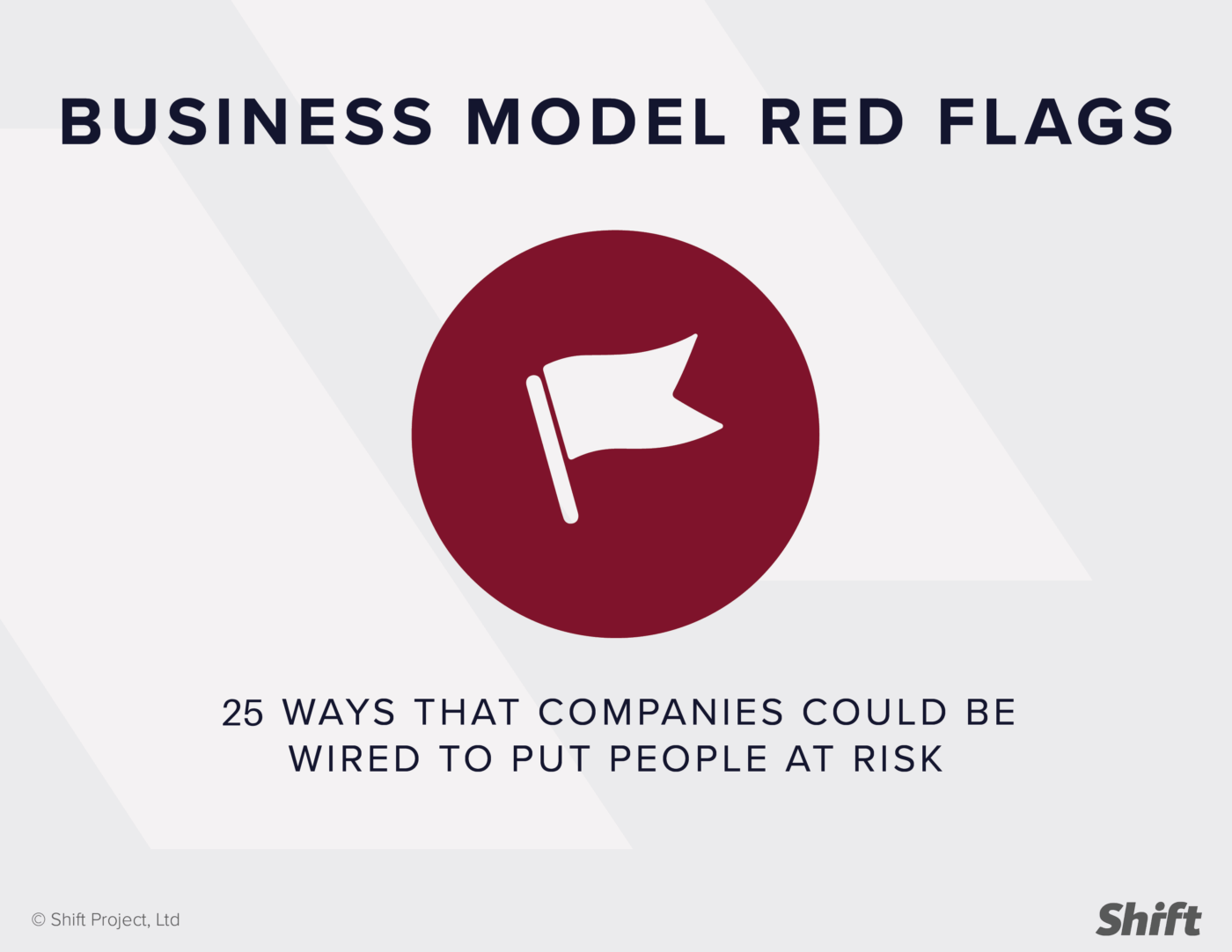
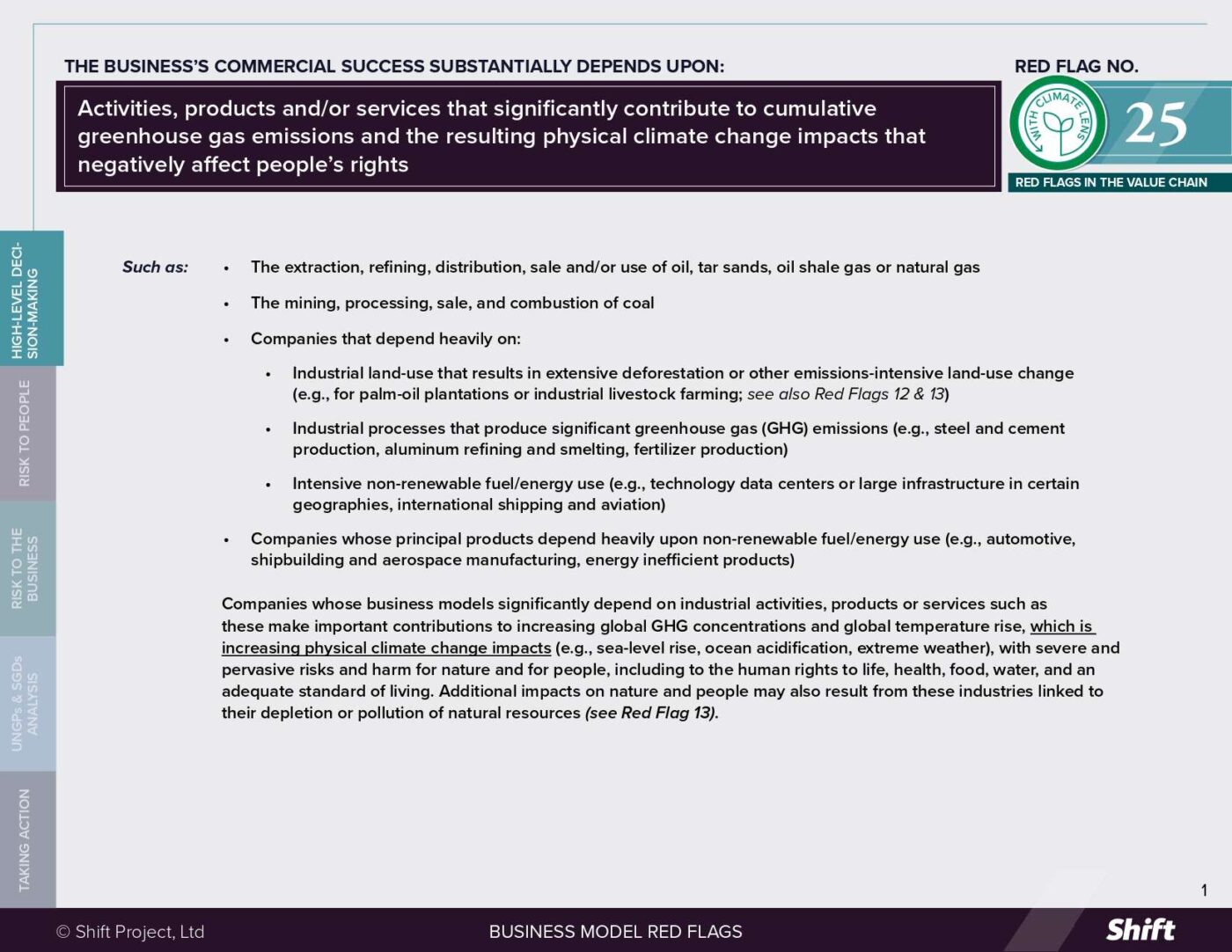
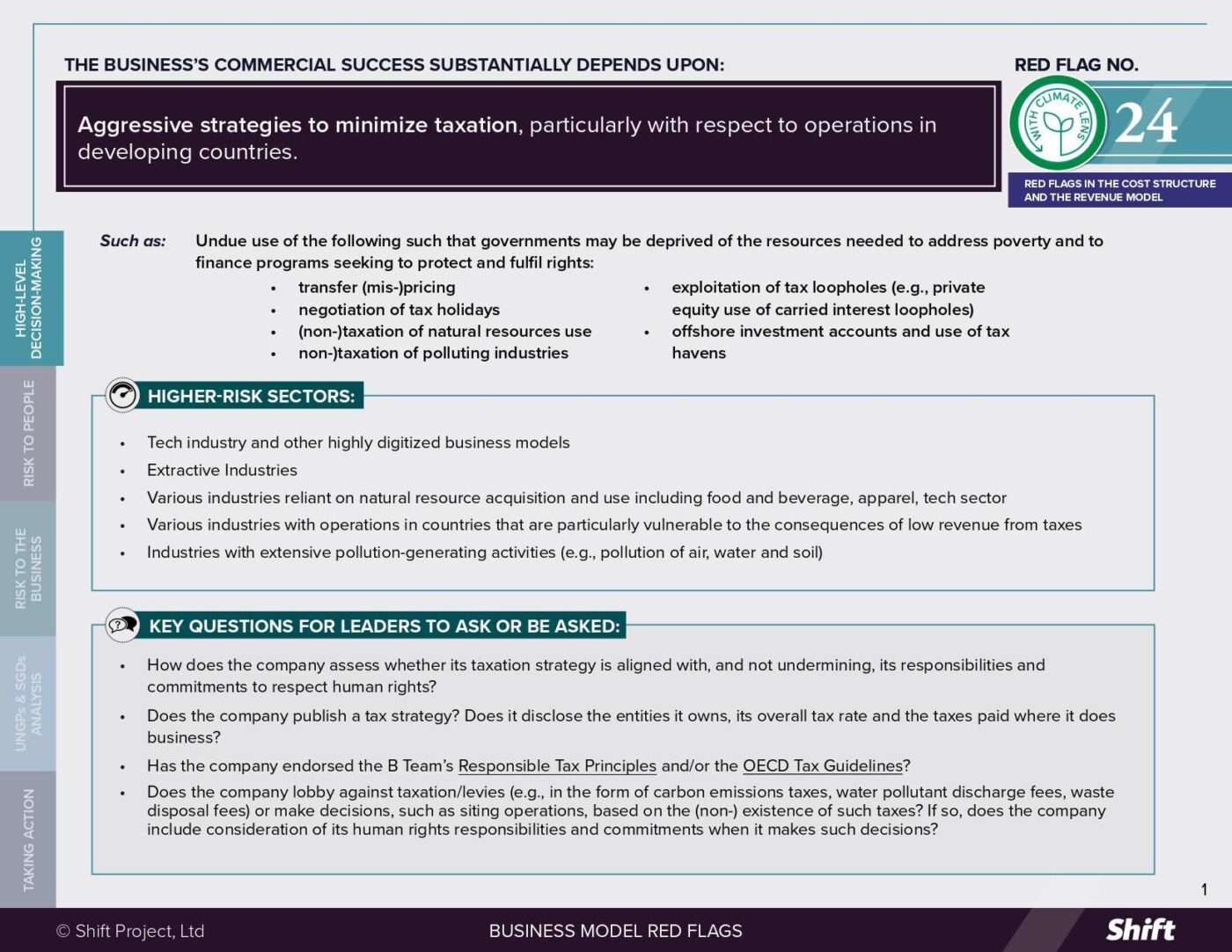
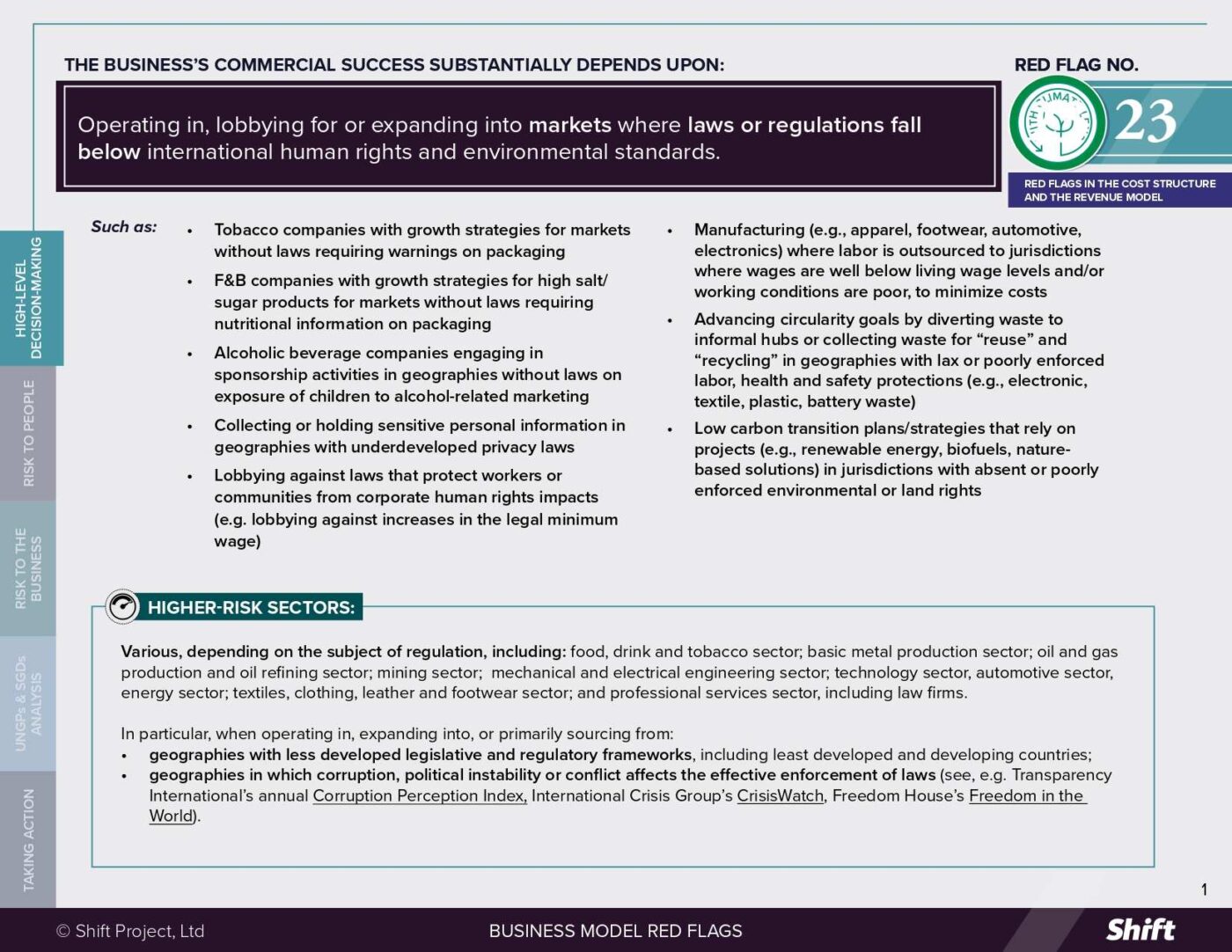
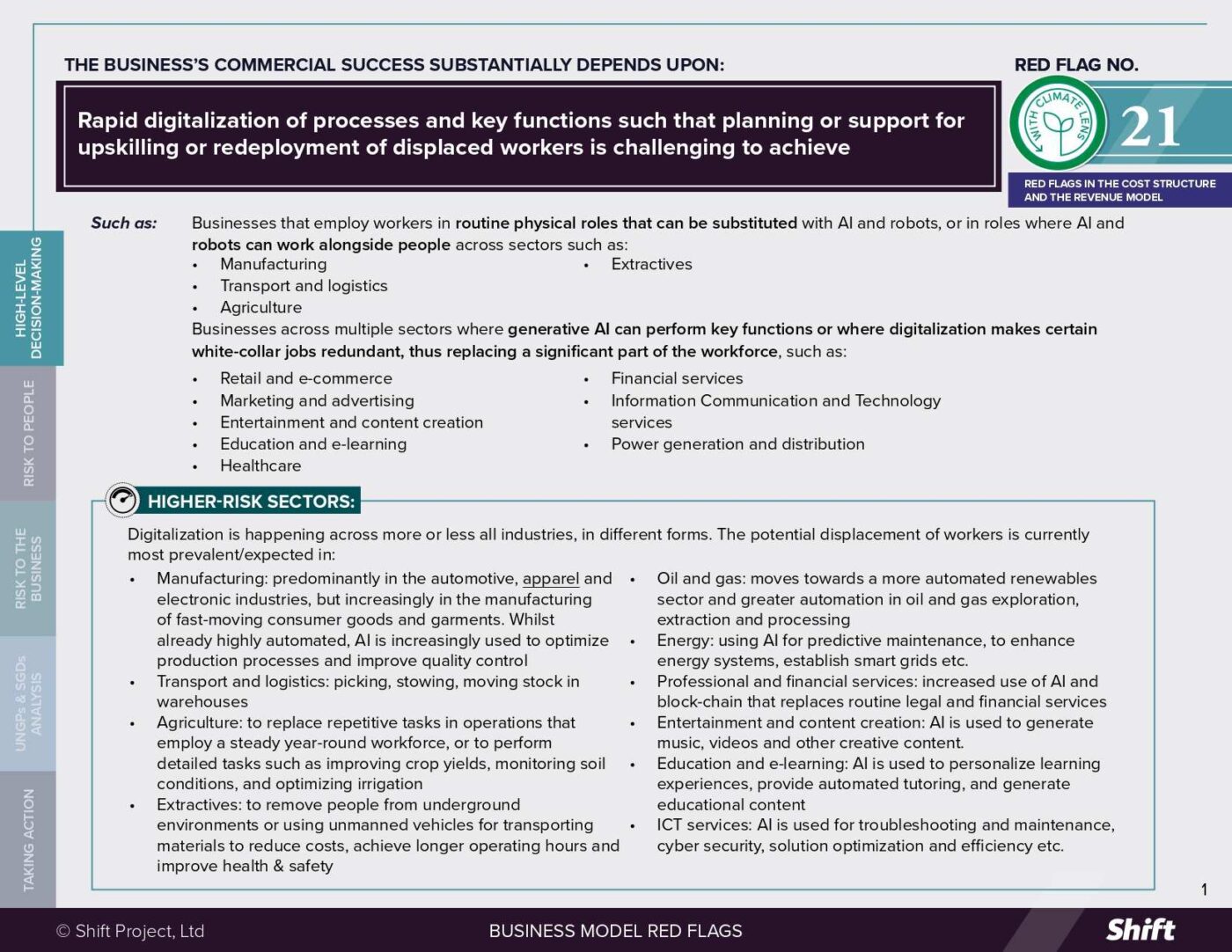
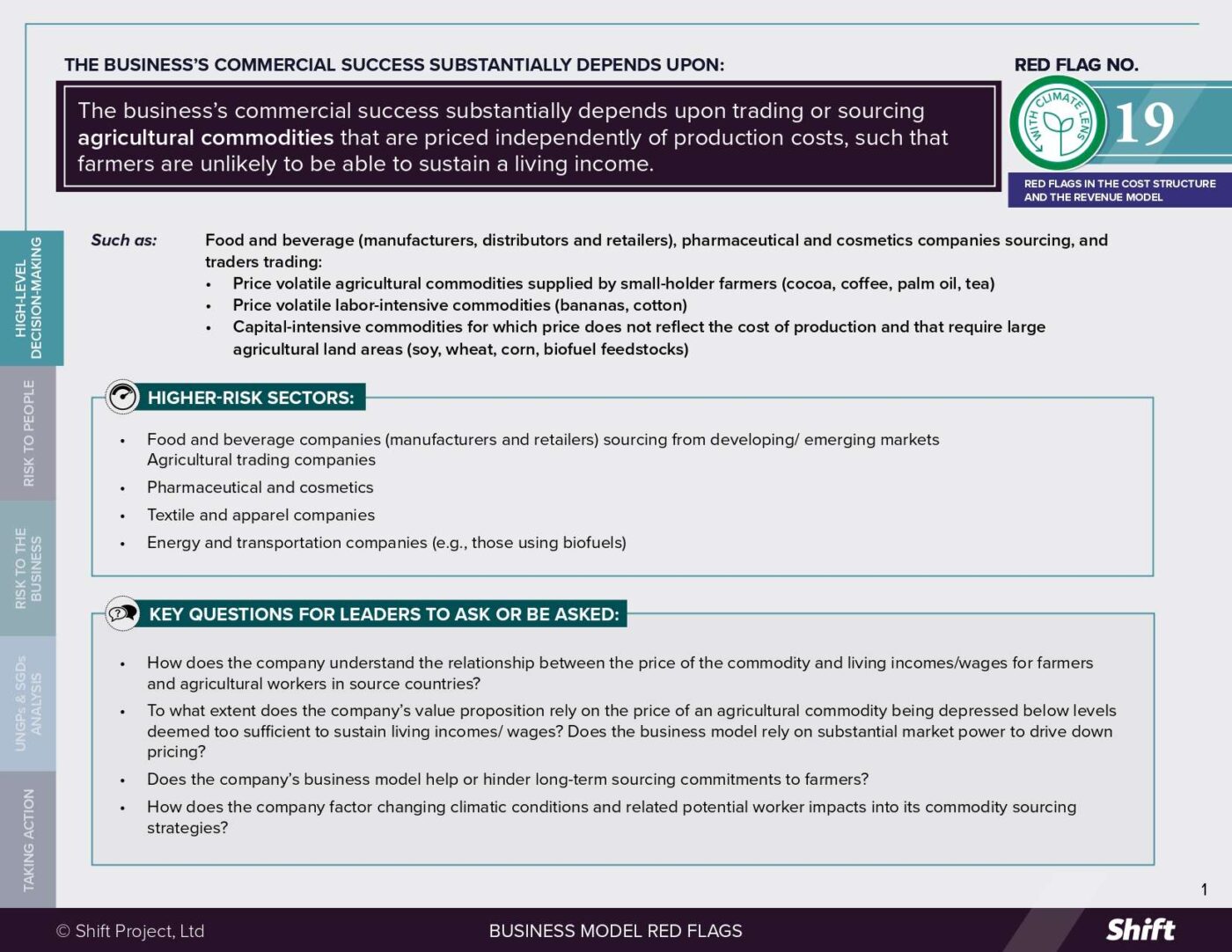
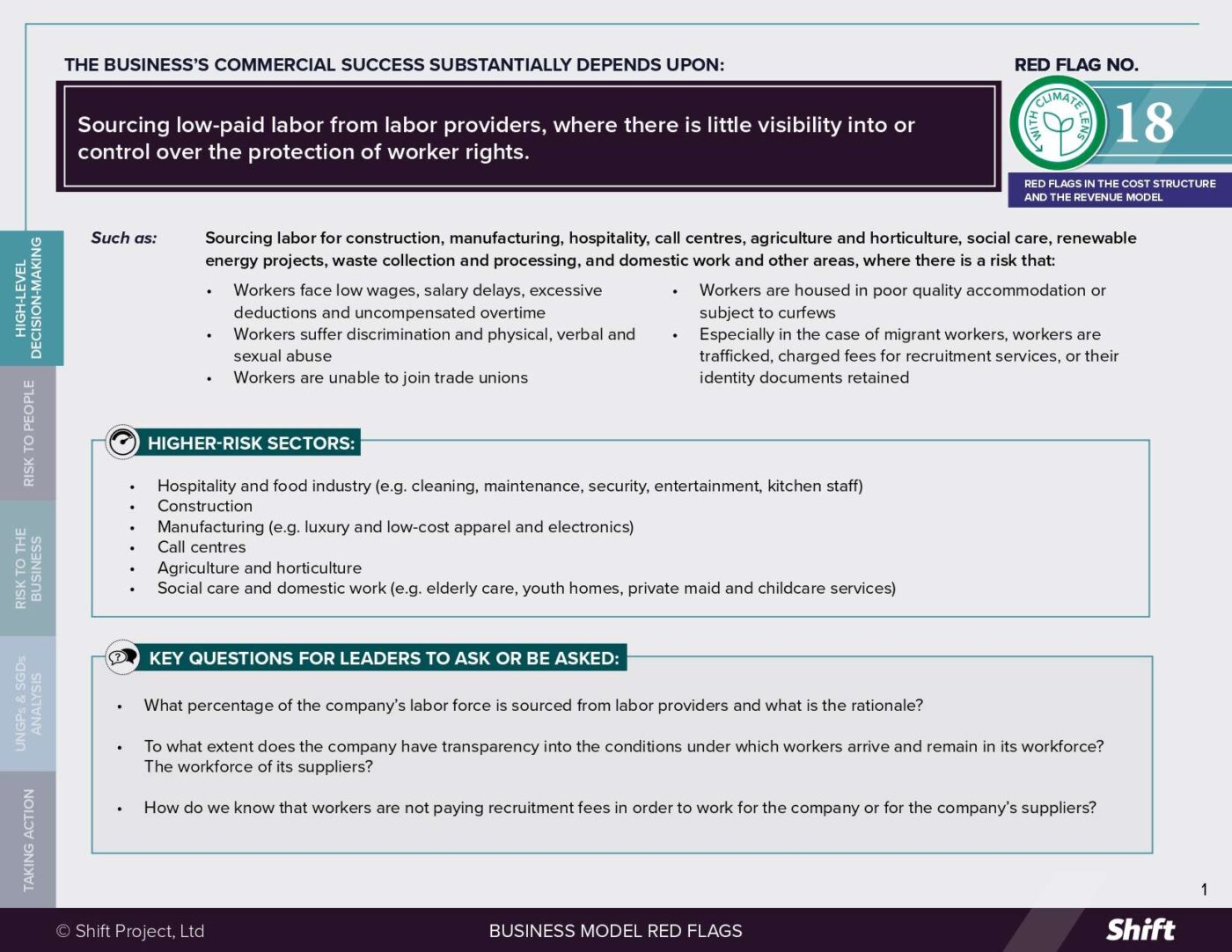
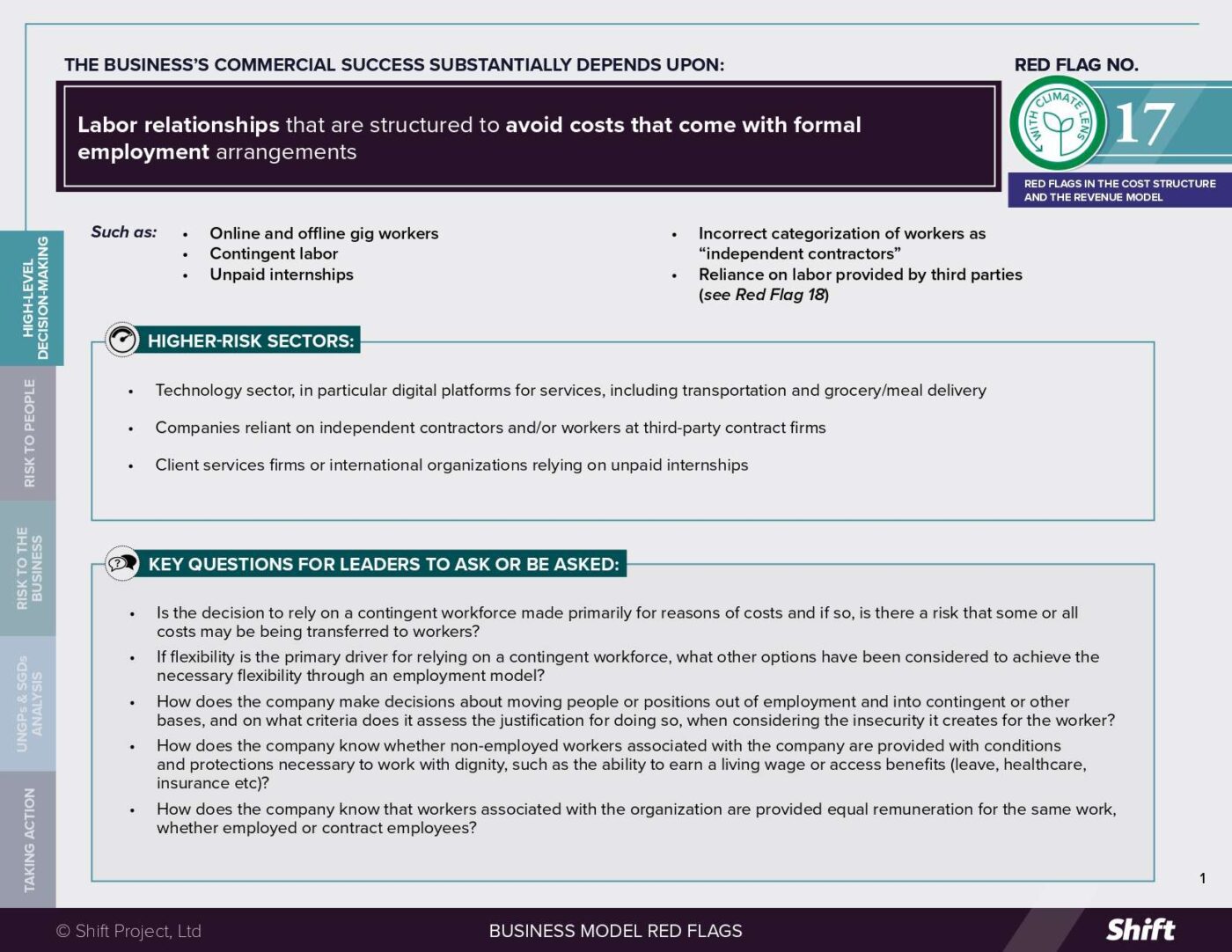
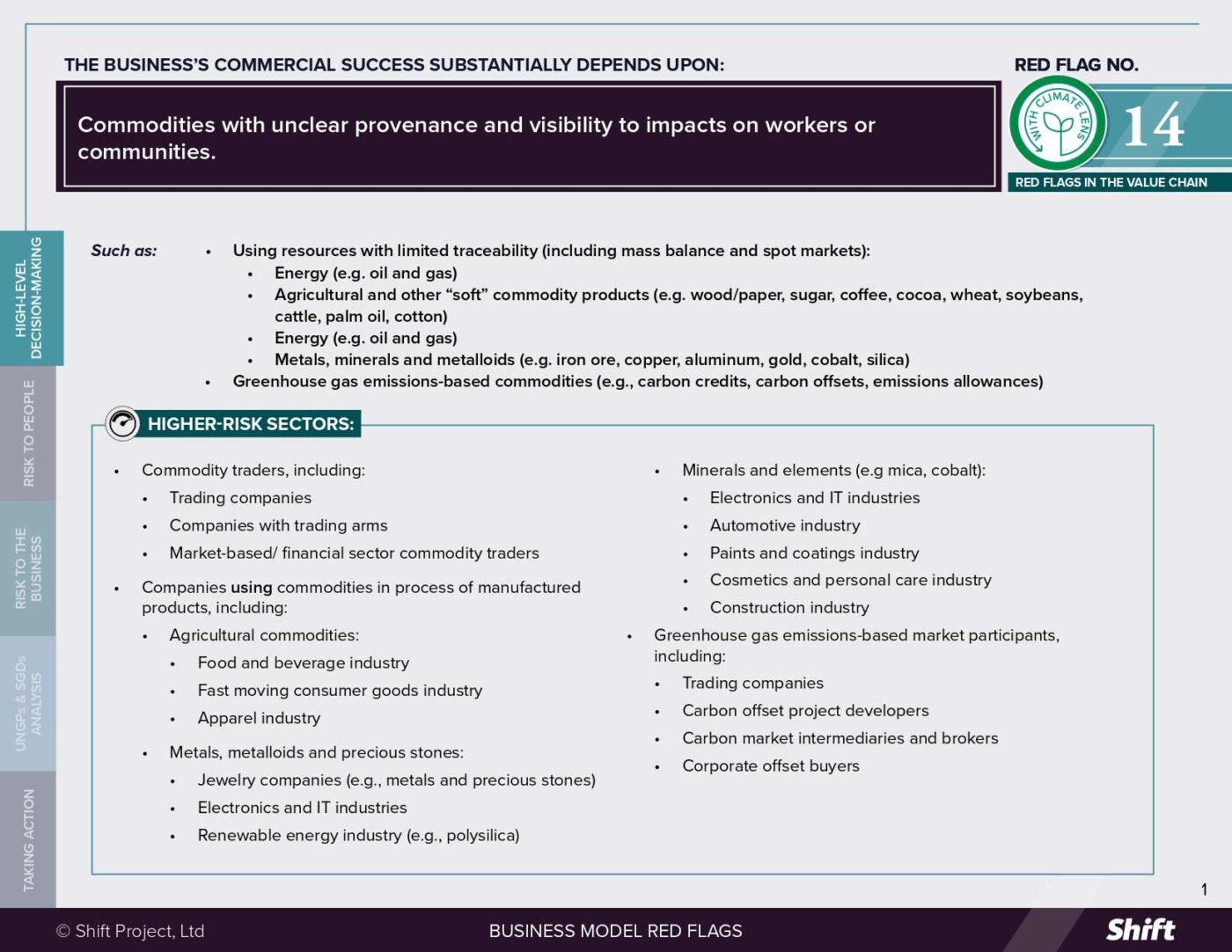
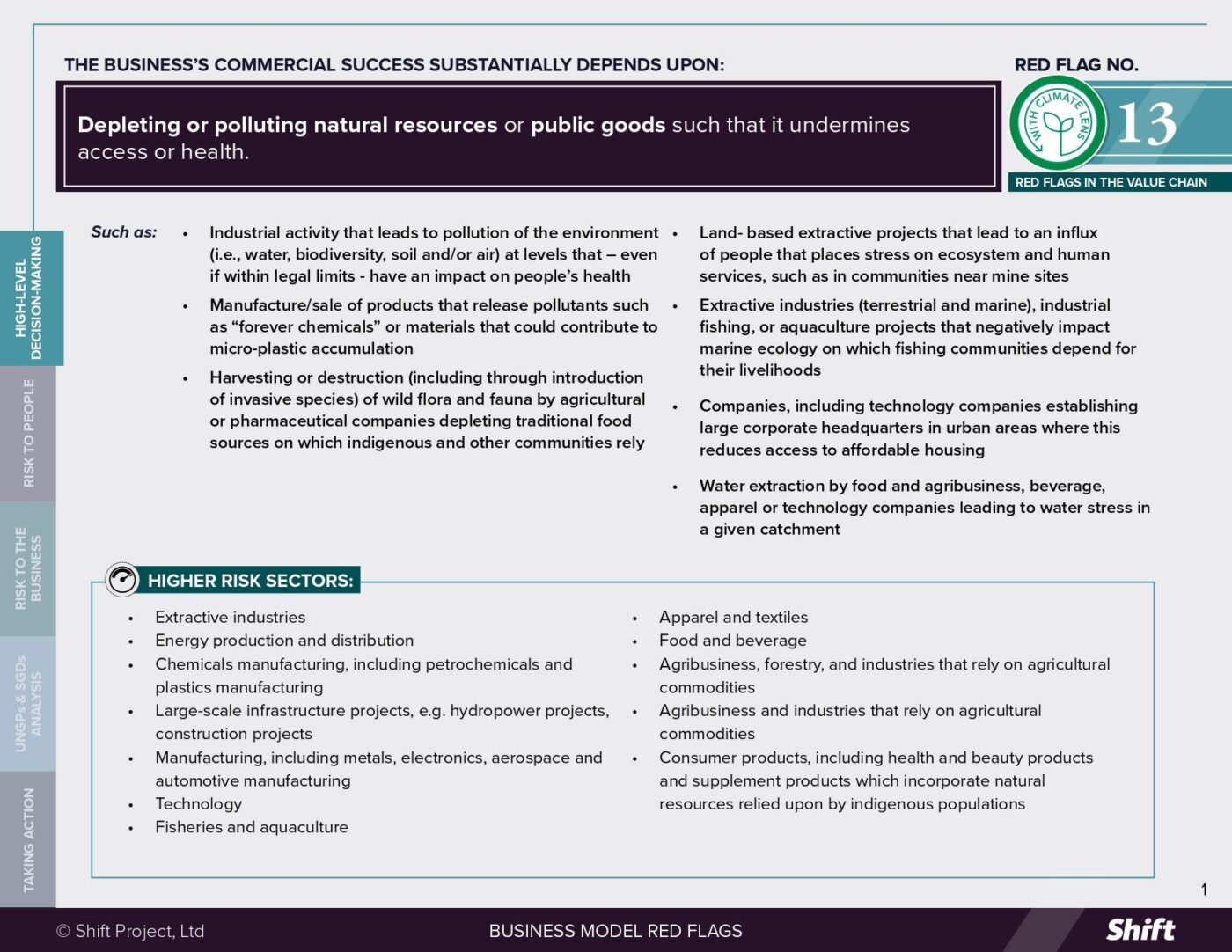
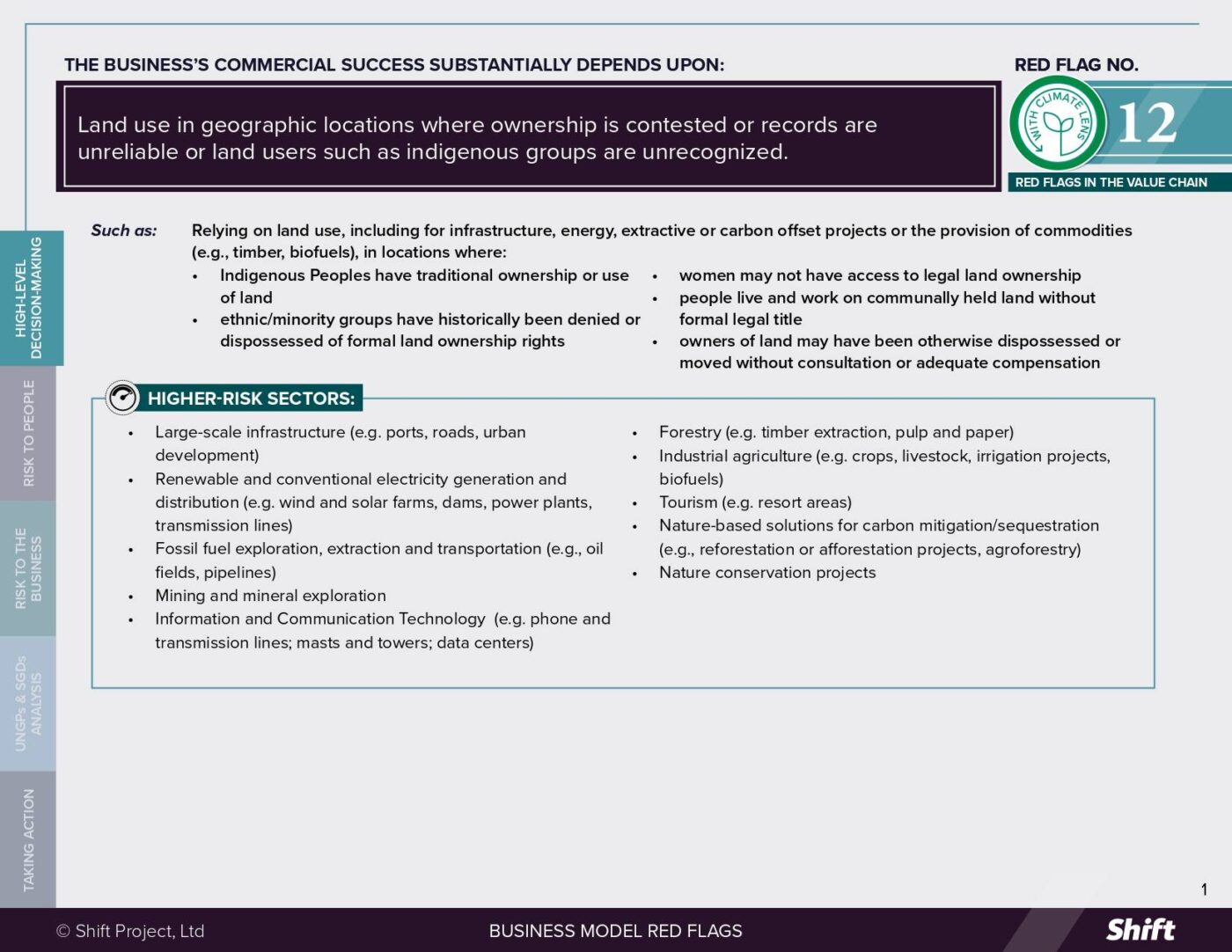
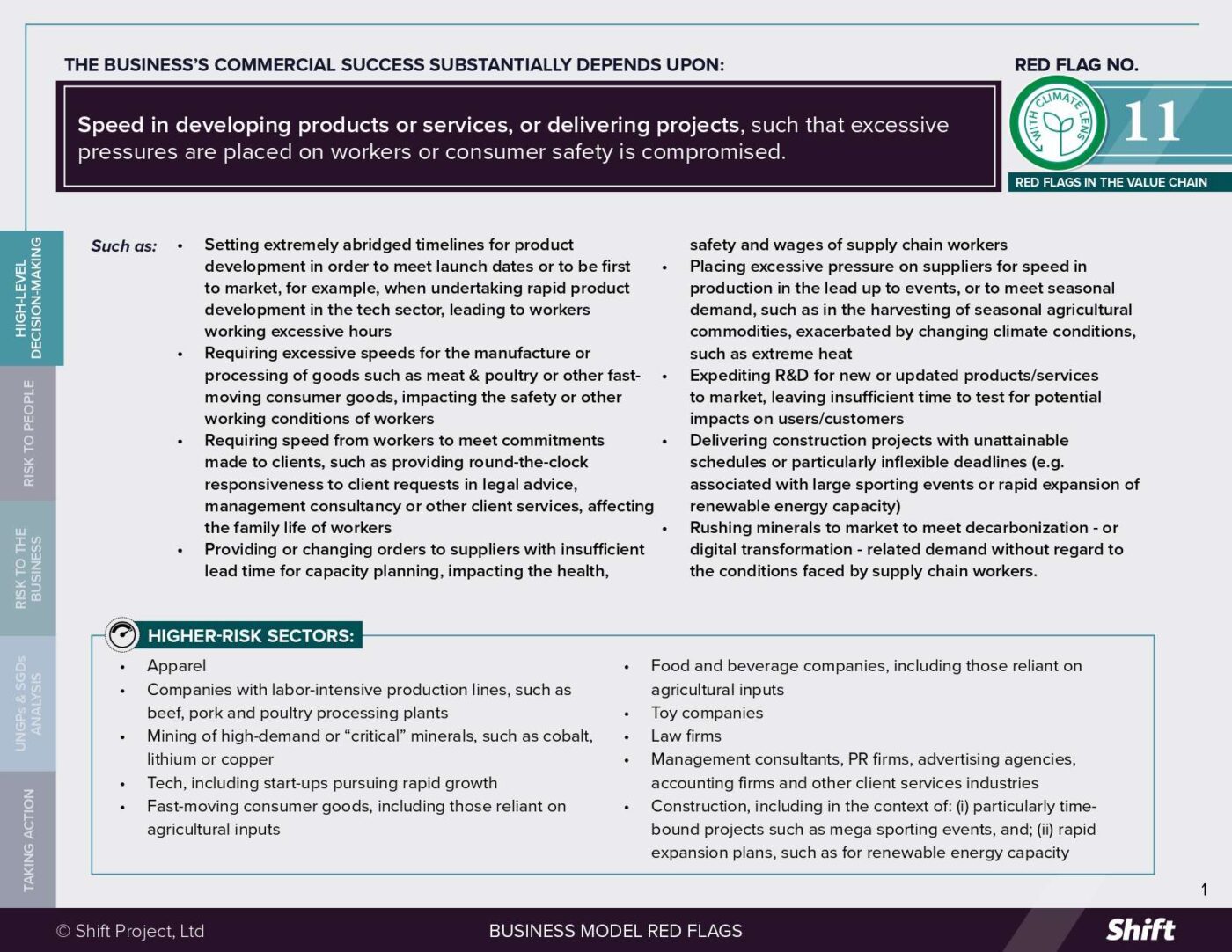
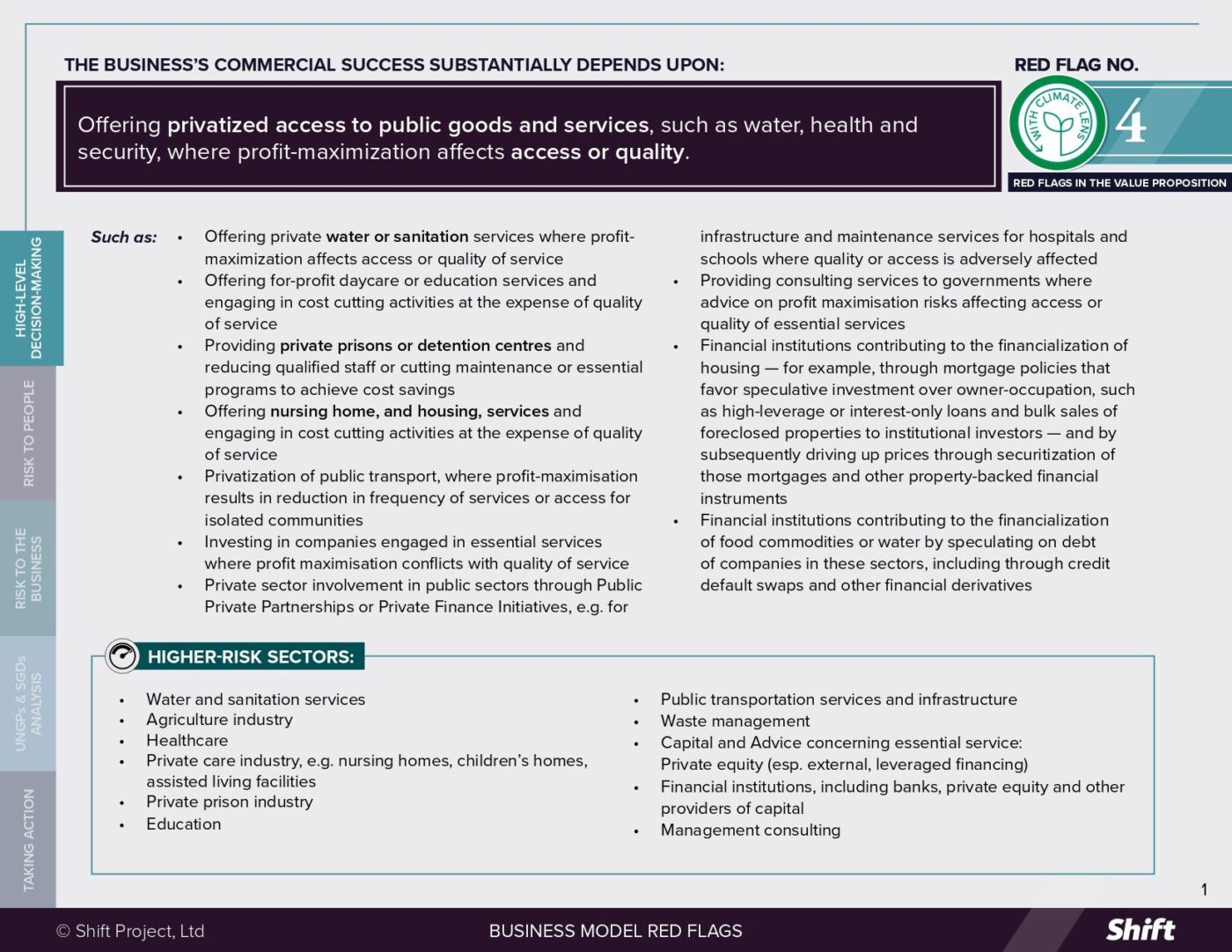
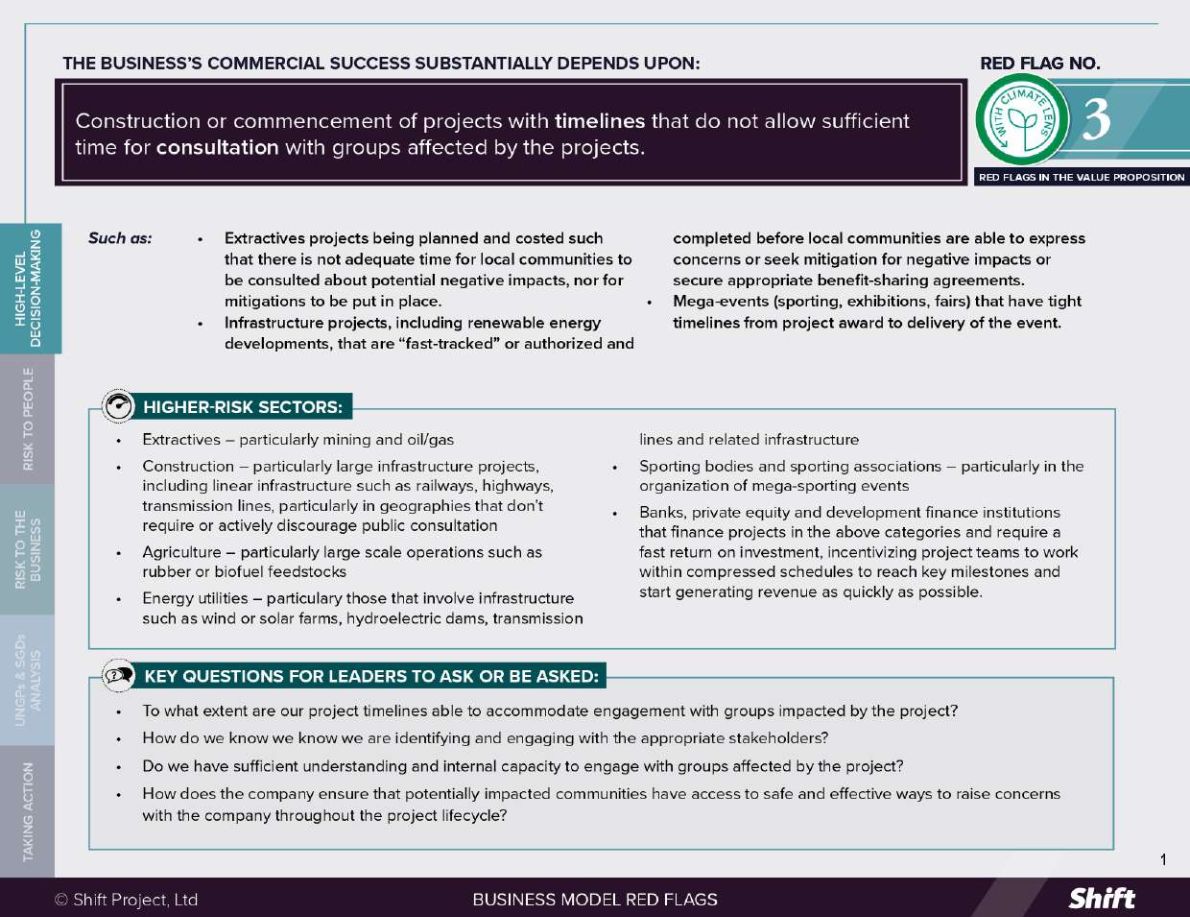
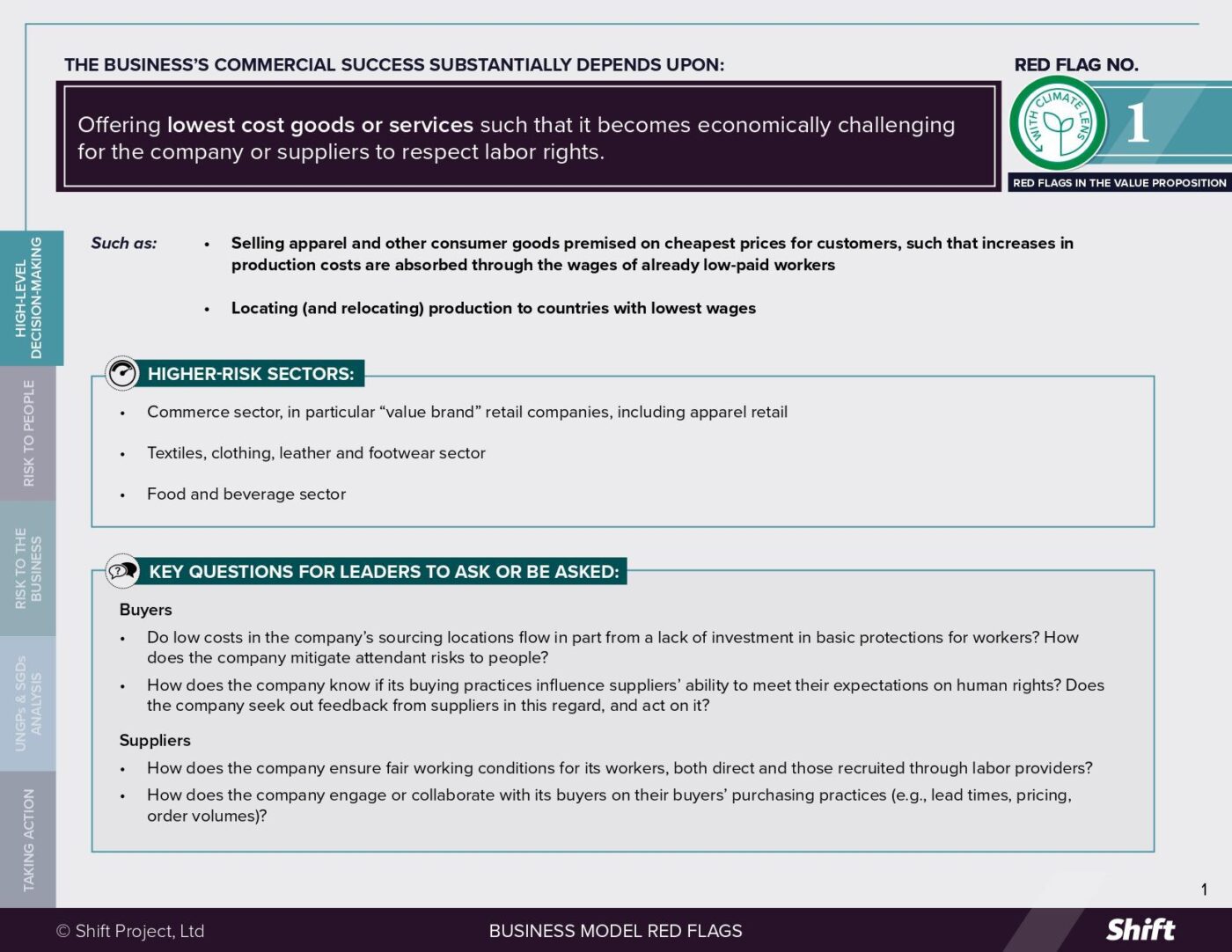
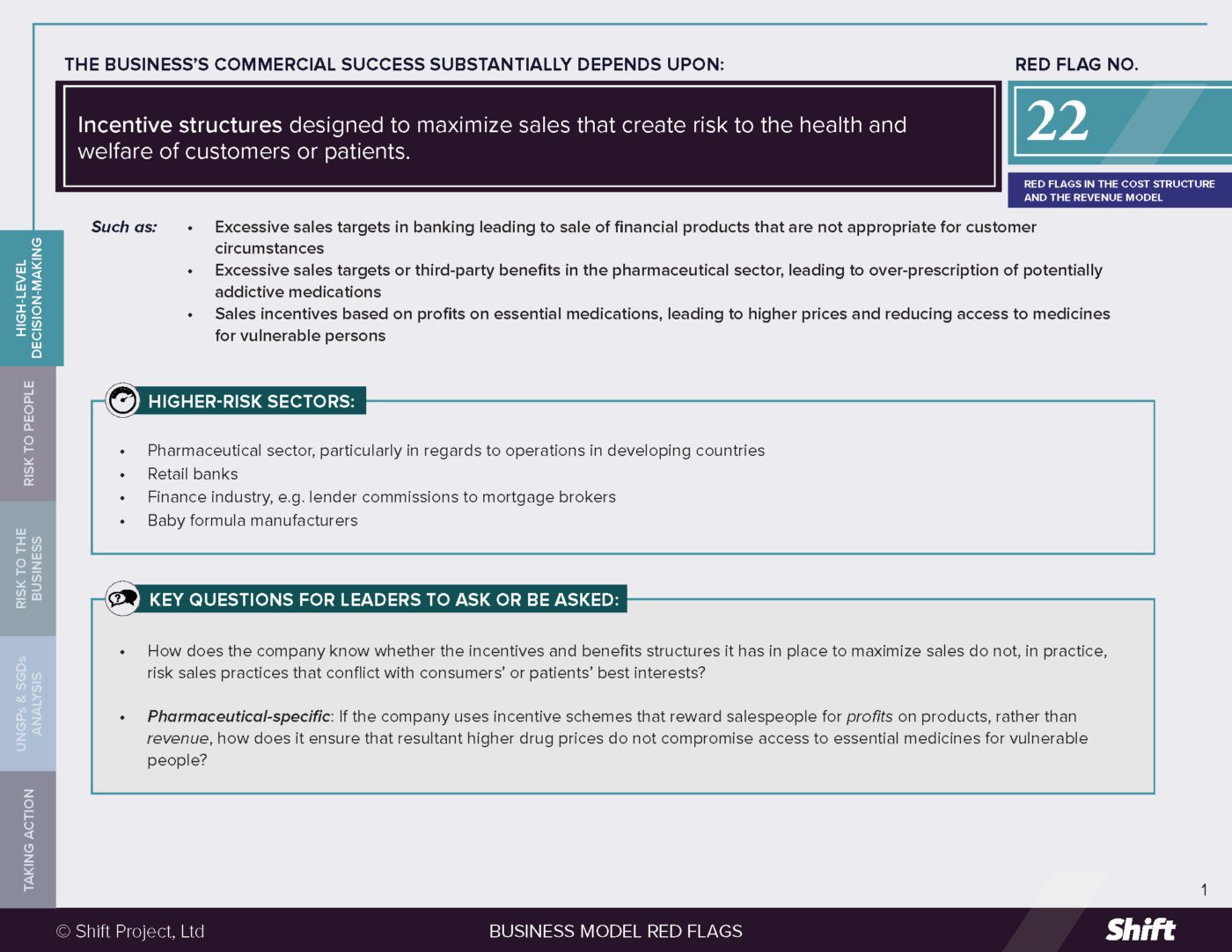
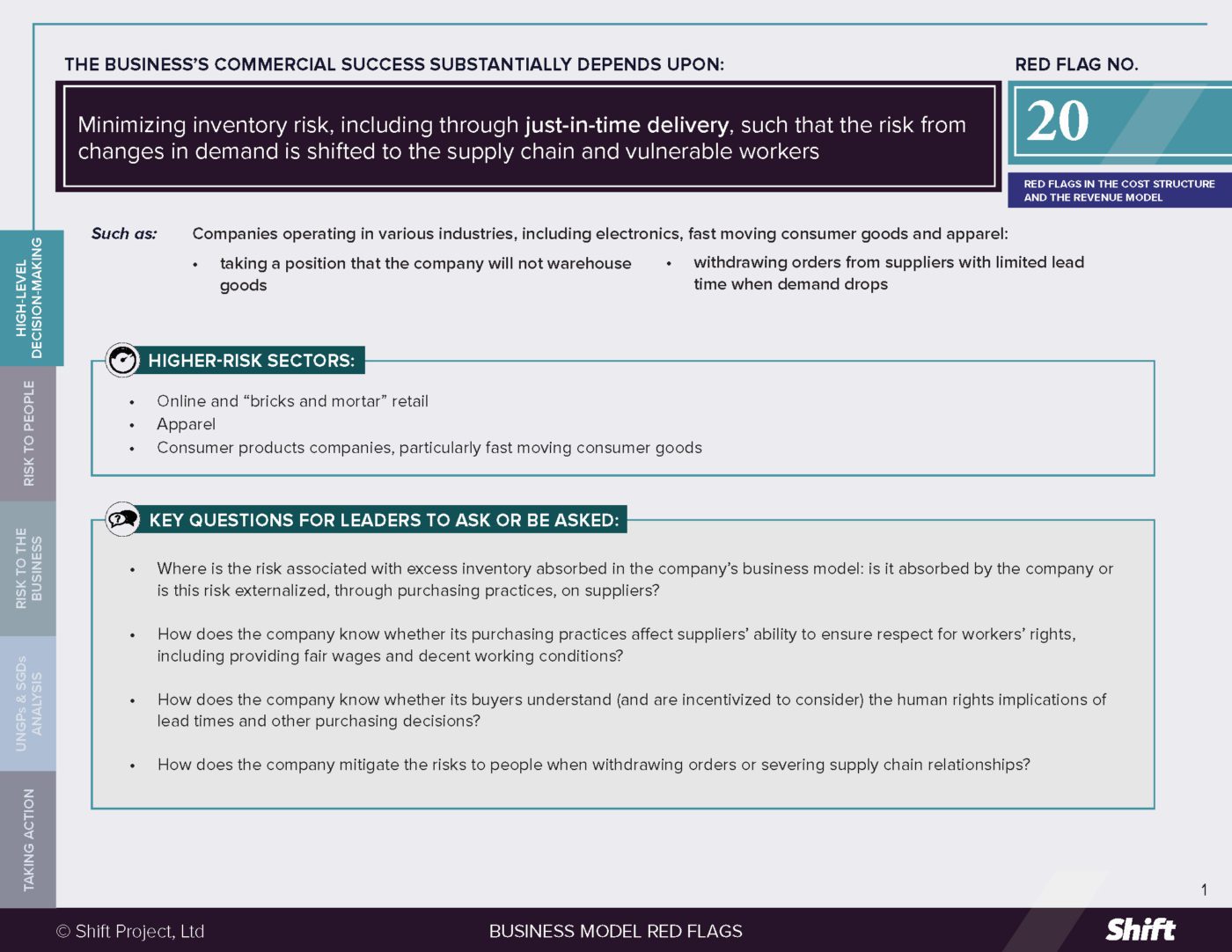
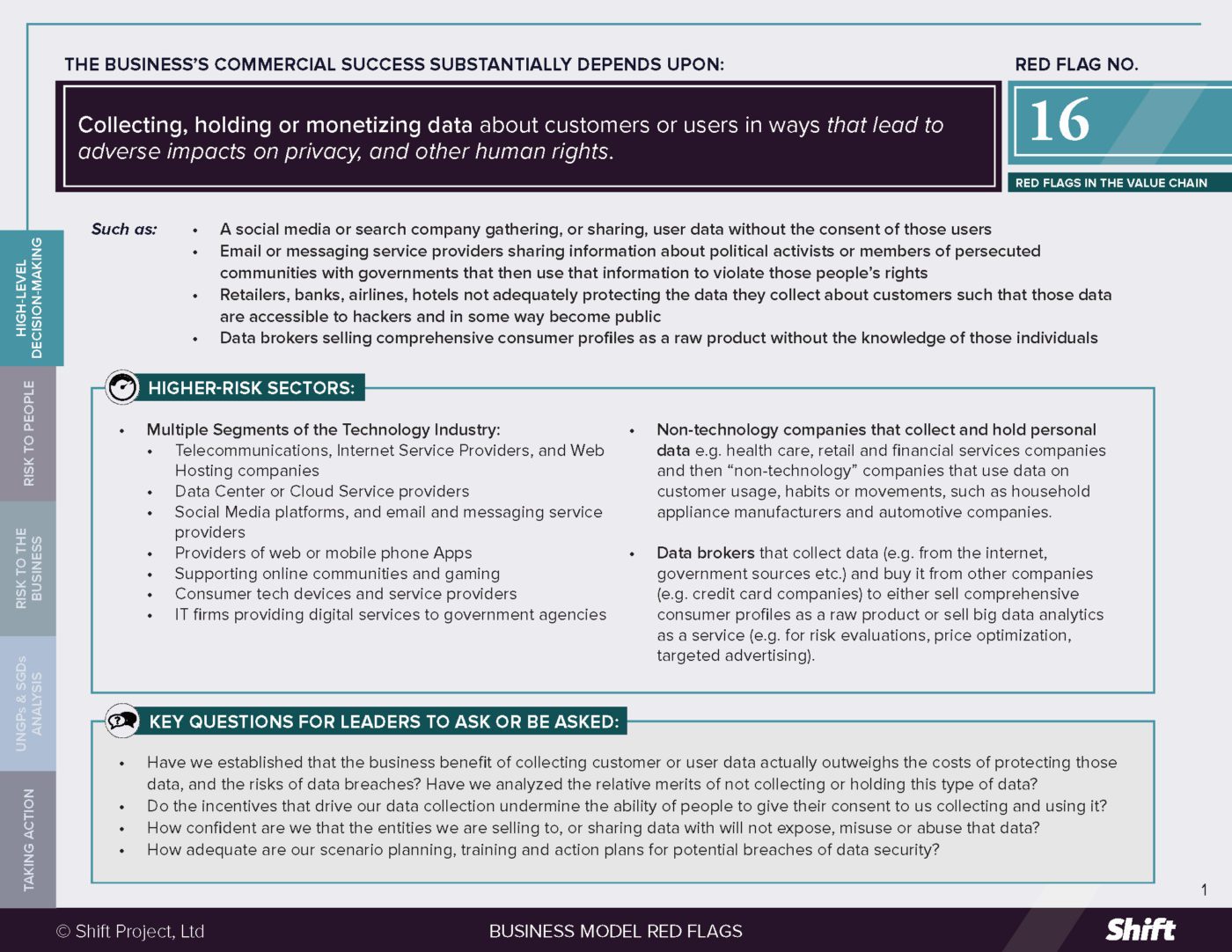
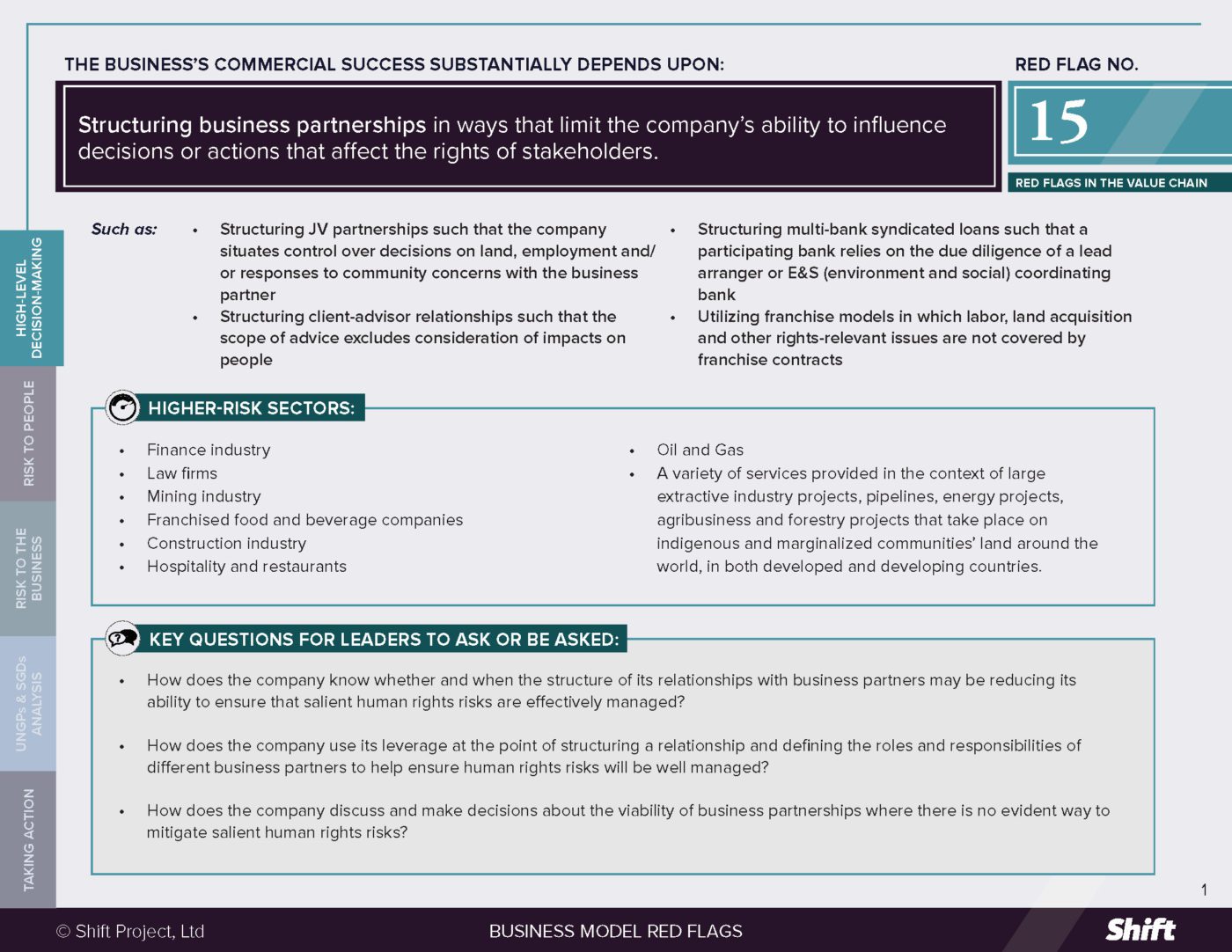
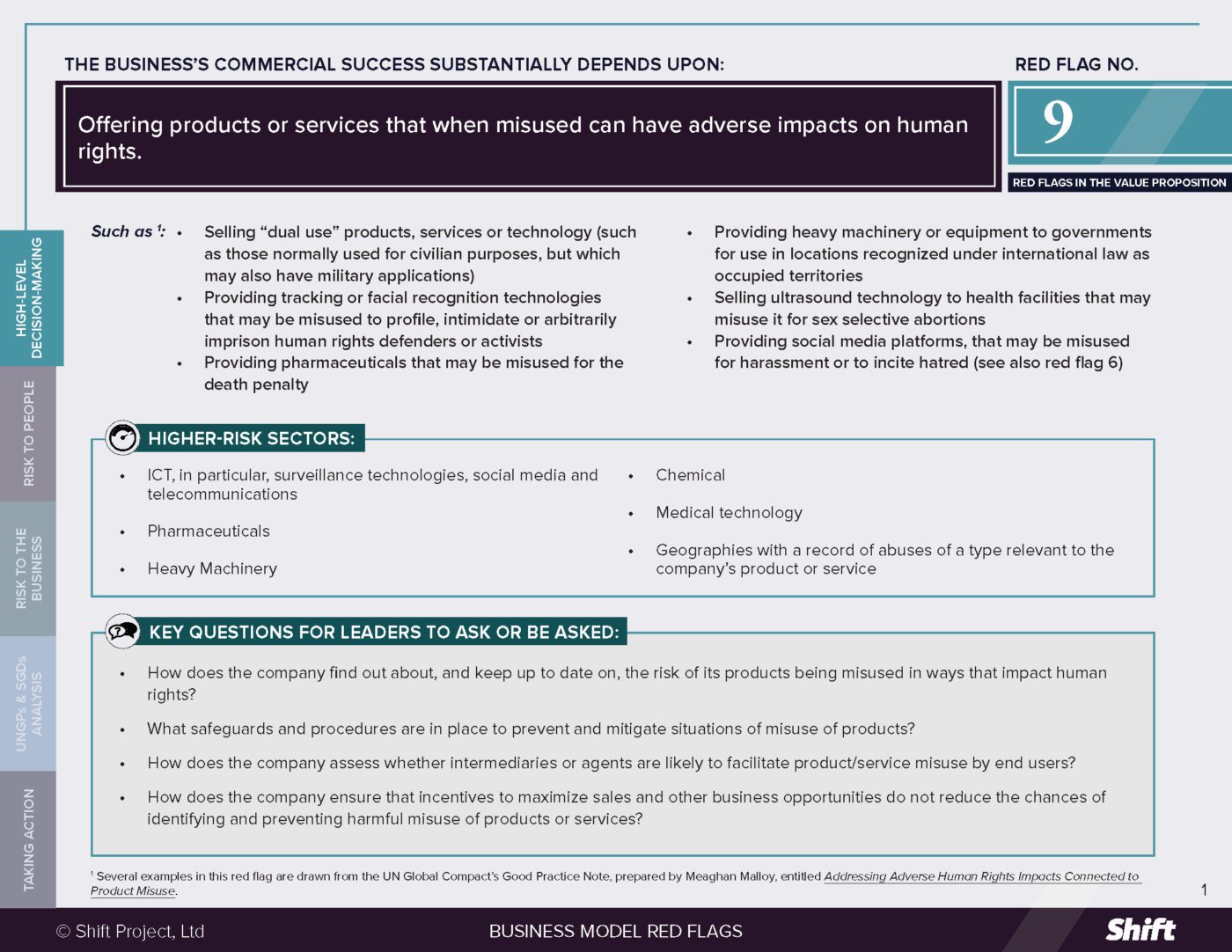
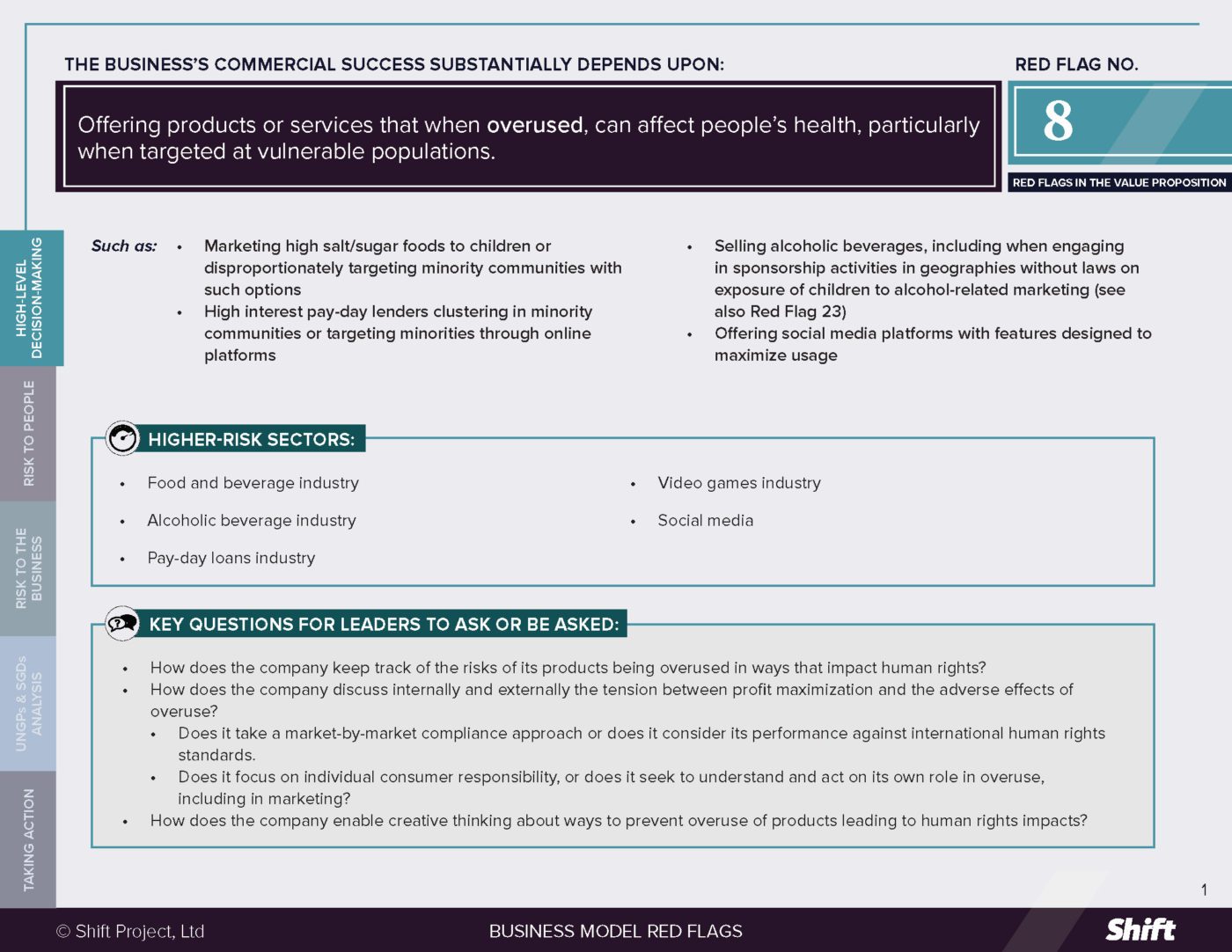
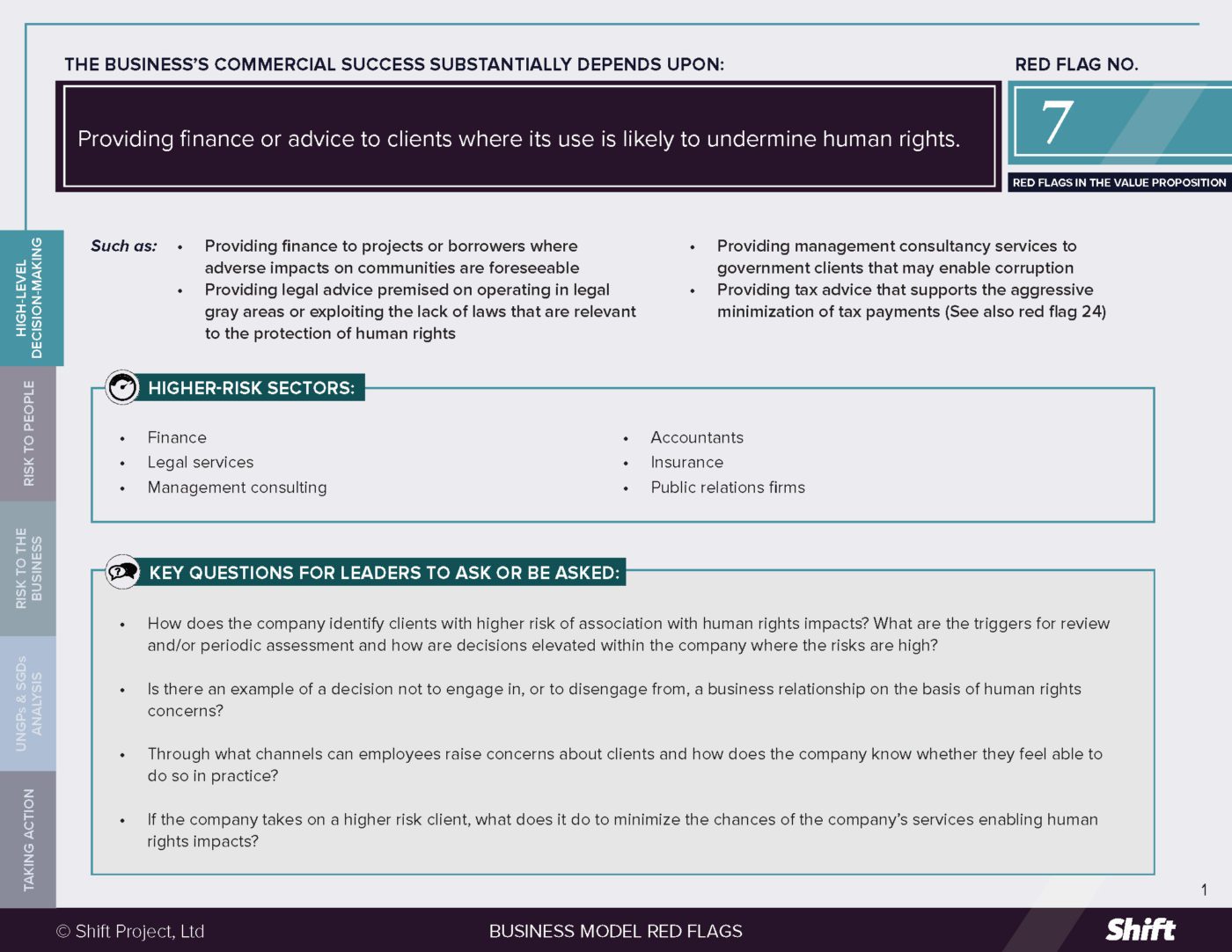
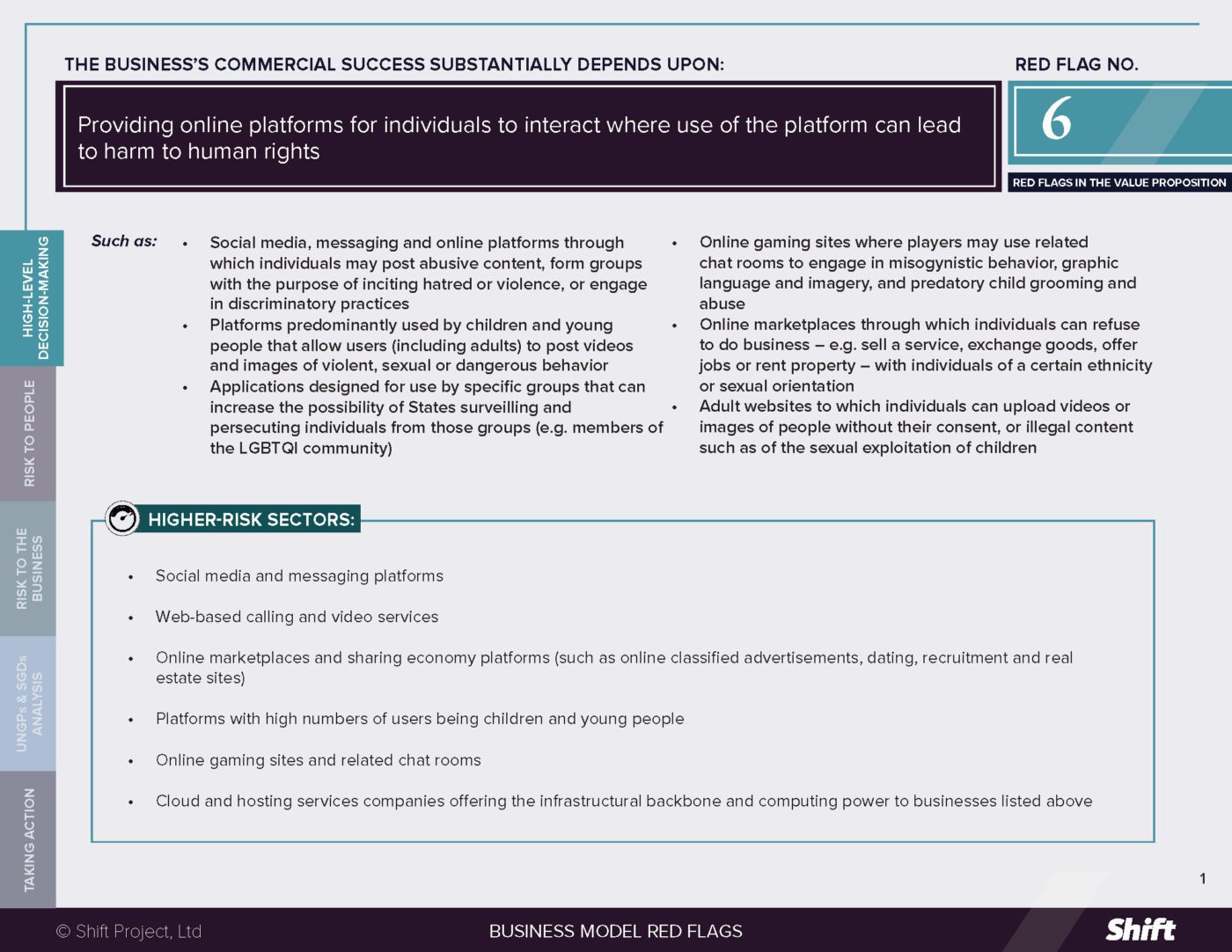
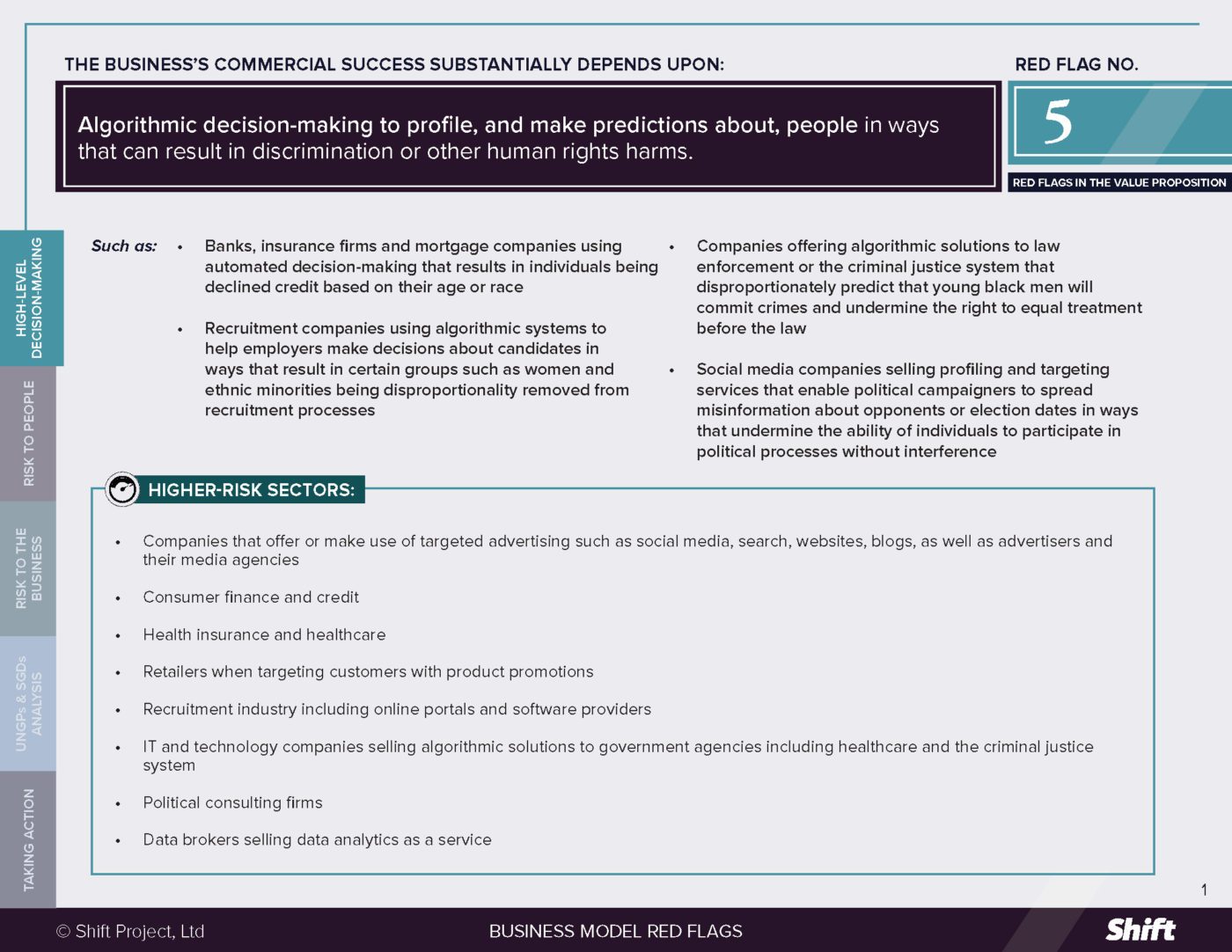
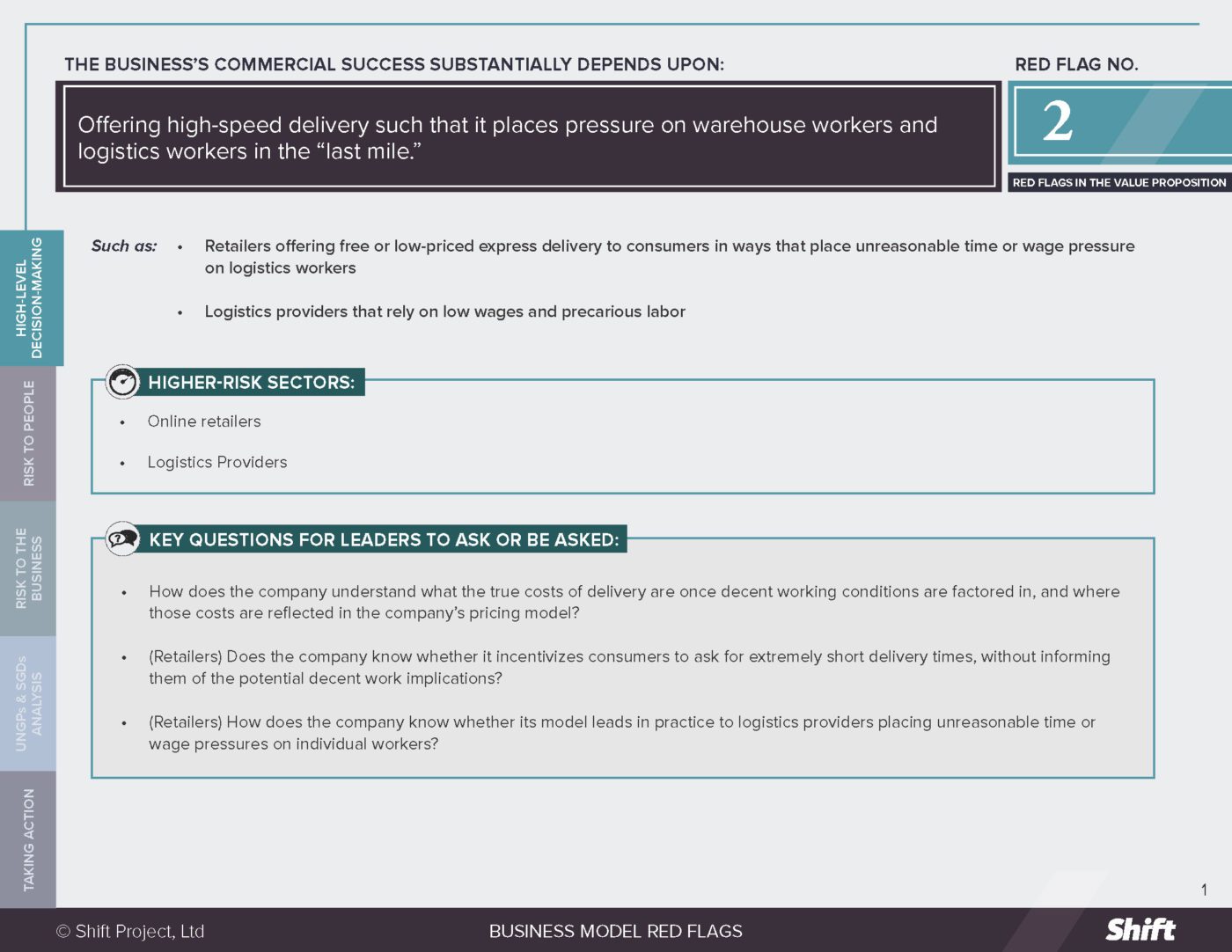
Indicator Design Tool
The Indicator Design Tool enables business practitioners to develop targets and indicators that show whether or not their efforts to advance respect for human rights are working, and why.
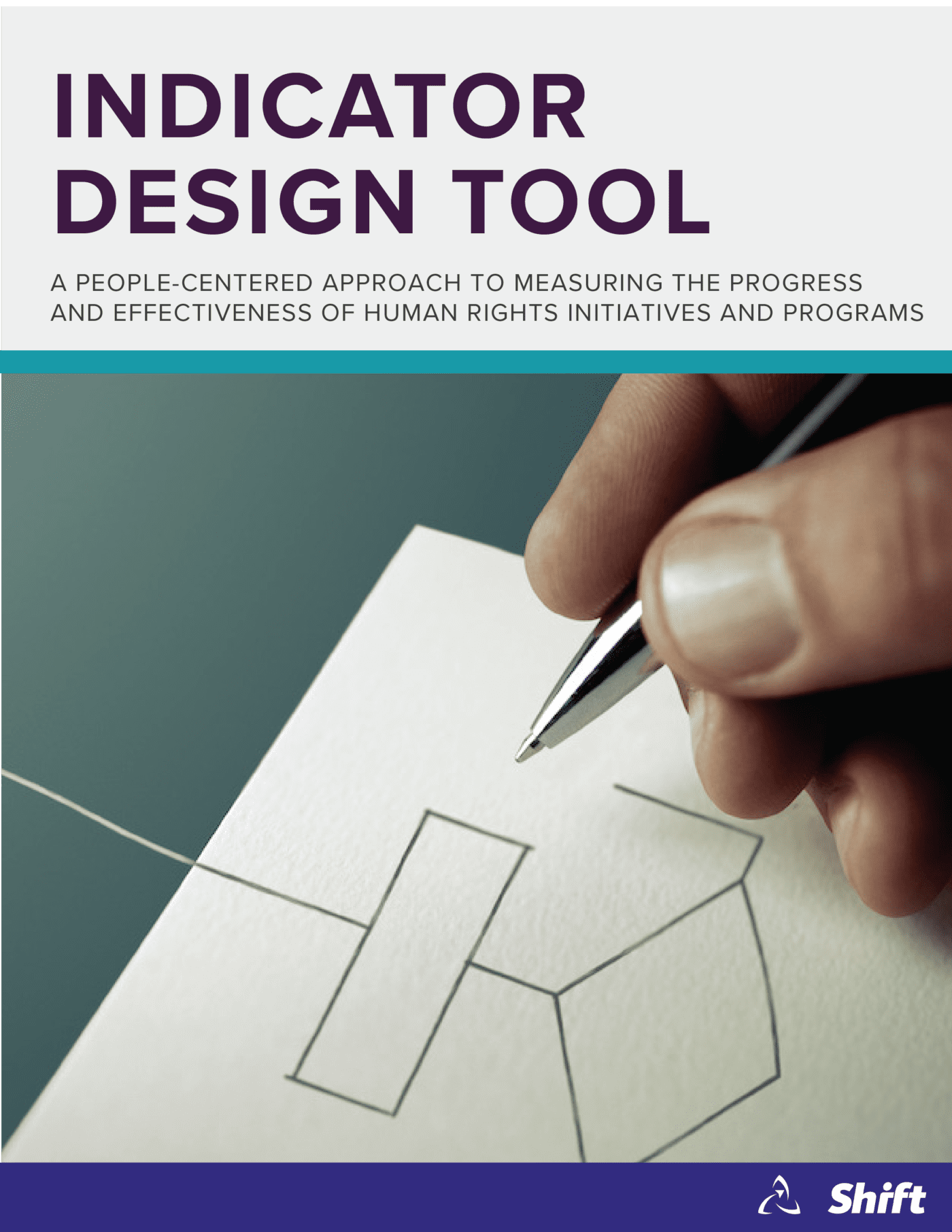
Assessing the Quality of Relationships
The Quality of Relationships collection consists of eight resources: a series of three case studies and five methodologies, featuring a variety of contexts, industries and tools to help companies assess the quality of relationships and embed stakeholder voice across their due diligence efforts.
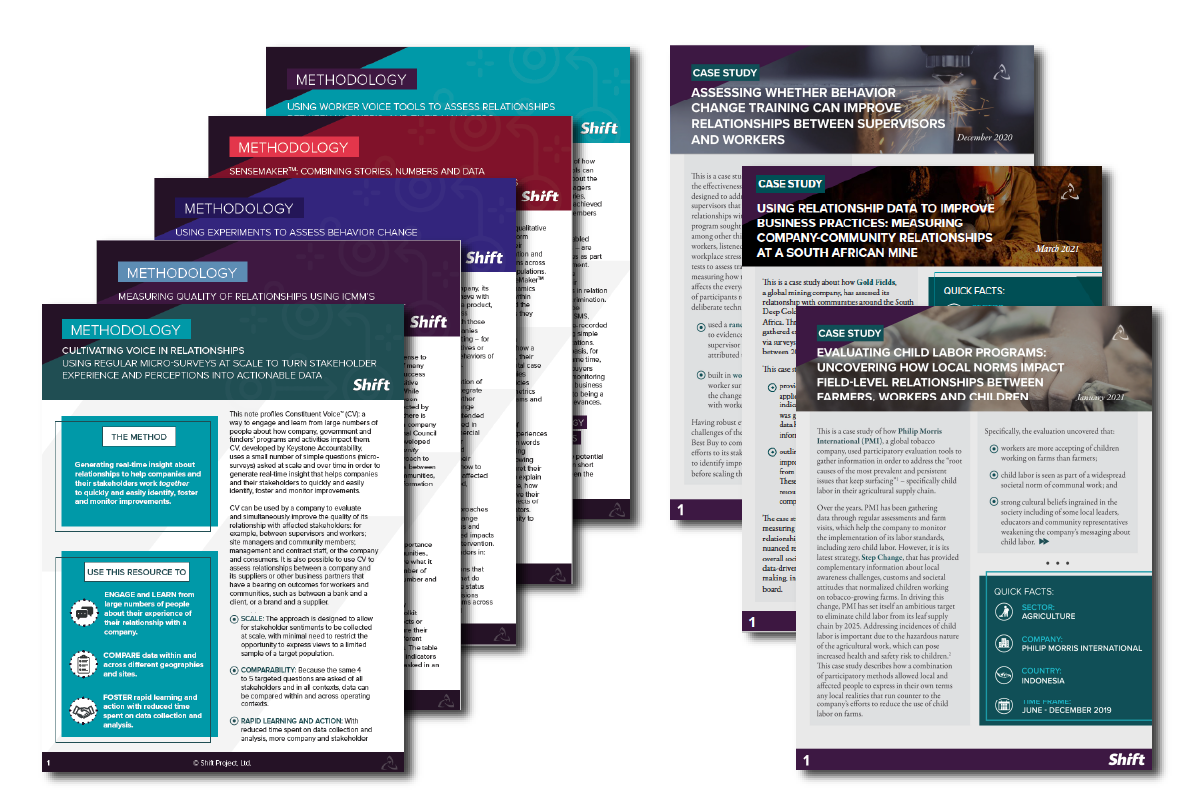
Using Worker Voice Tools to Assess Relationships Between Workers and their Managers
This note focuses on one dimension of how technology-enabled worker voice tools can be used: to gather qualitative data about the nature of relationships between managers and workers or communities at factories, farms, mines and plantations. This is achieved by asking workers and community members relationship-based questions.
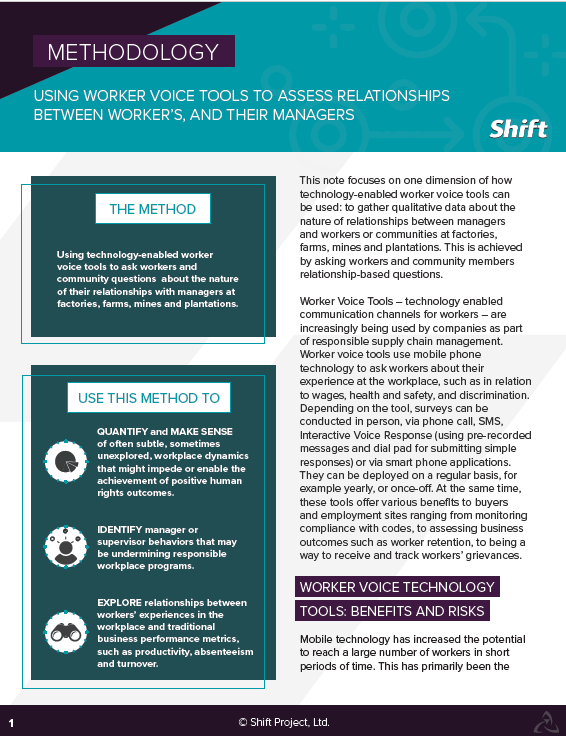
Sensemaker: Combining Stories, Numbers and Data Analytics to Uncover Hidden Dimensions of Relationships
This method note explores the use of Sensemaker, a tool that can help collect "micronarratives" from large and diverse populations of affected workers or communities - then visualize patters to reveal insights about their experiences.
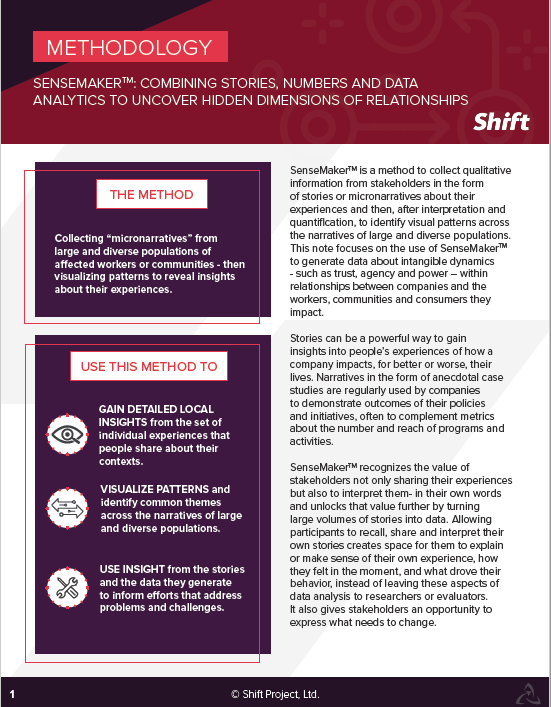
Using Experiments to Assess Behavior Change Interventions
Experiments – specifically the application of Randomized Control Trials (RCTs) – that integrate stakeholder voice can determine whether and to what extent such behavior change interventions and programs lead to intended outcomes.
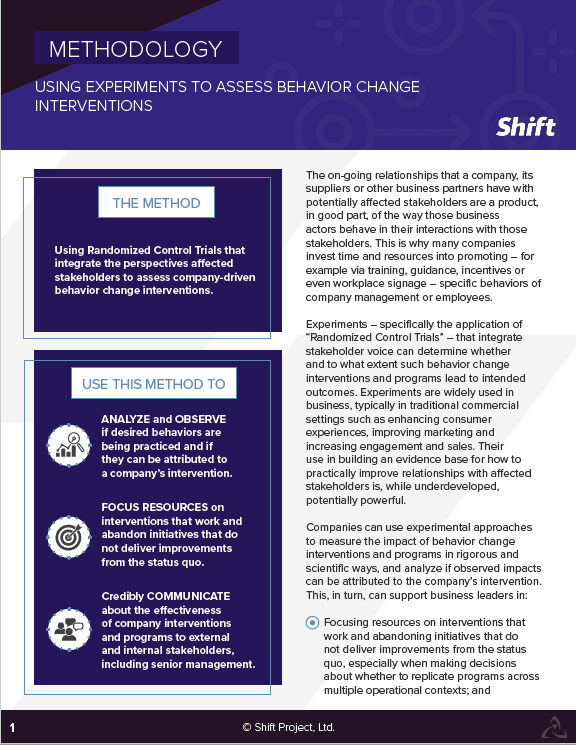
Measuring Quality of Relationships: Using ICMM’s “Understanding Company-Community Relations” Toolkit
While the need for good relationships between companies and their host communities is widely recognized, there is very little clarity on how to assess if a company is achieving this goal. The International Council on Mining and Metals (ICMM), has developed the Understanding Company-Community Relations Toolkit as a structured approach to measuring the quality of relationships between mining companies and their host communities, with the ultimate goal of using the information to improve them.
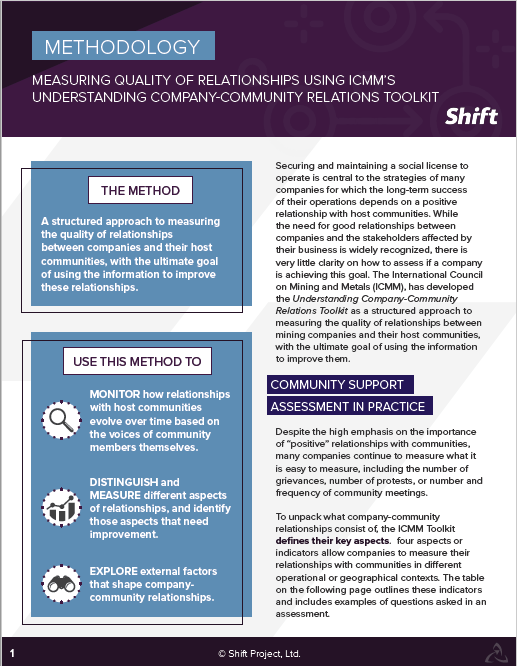
Cultivating Voice in Relationships: Using Regular Micro-surveys at Scale to turn Stakeholder Experience and Perceptions into Actionable Data
This note profiles Constituent Voice (CV): a way to engage and learn from large numbers of people about how company, government and funders' programs and activities impact them. CV, developed by Keystone Accountability uses a small number of simple questions (micro-surveys) asked at scale and over time in order to generate real-time insight that helps companies and their stakeholders to quickly and easily identify, foster and monitor improvements.
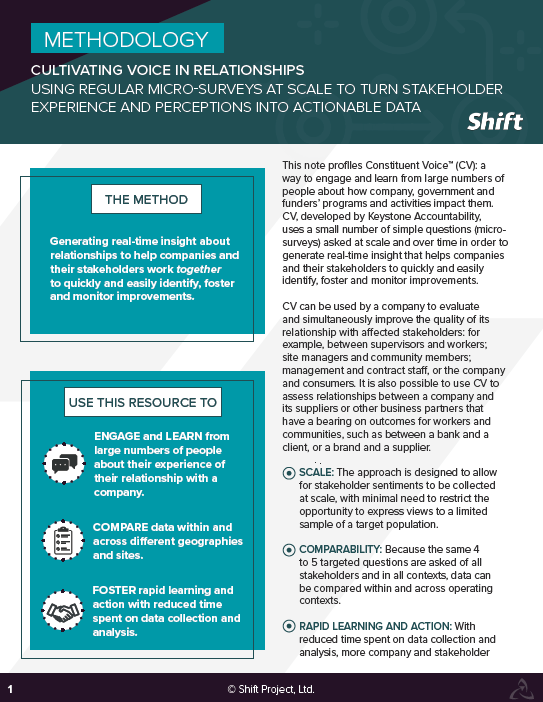
Using Relationship Data to Improve Business Practices: Measuring Company-Community Relationships at a South African Mine
This is a case study about how Gold Fields, a global mining company, has assessed its relationship with communities around the South Deep Gold Mine in the West Rand, South Africa. Three assessments, in which the company gathered extensive community perceptions via surveys and focus groups, were conducted between 2014 and 2019.
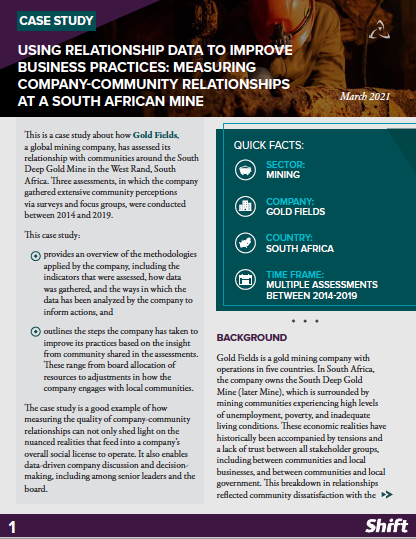
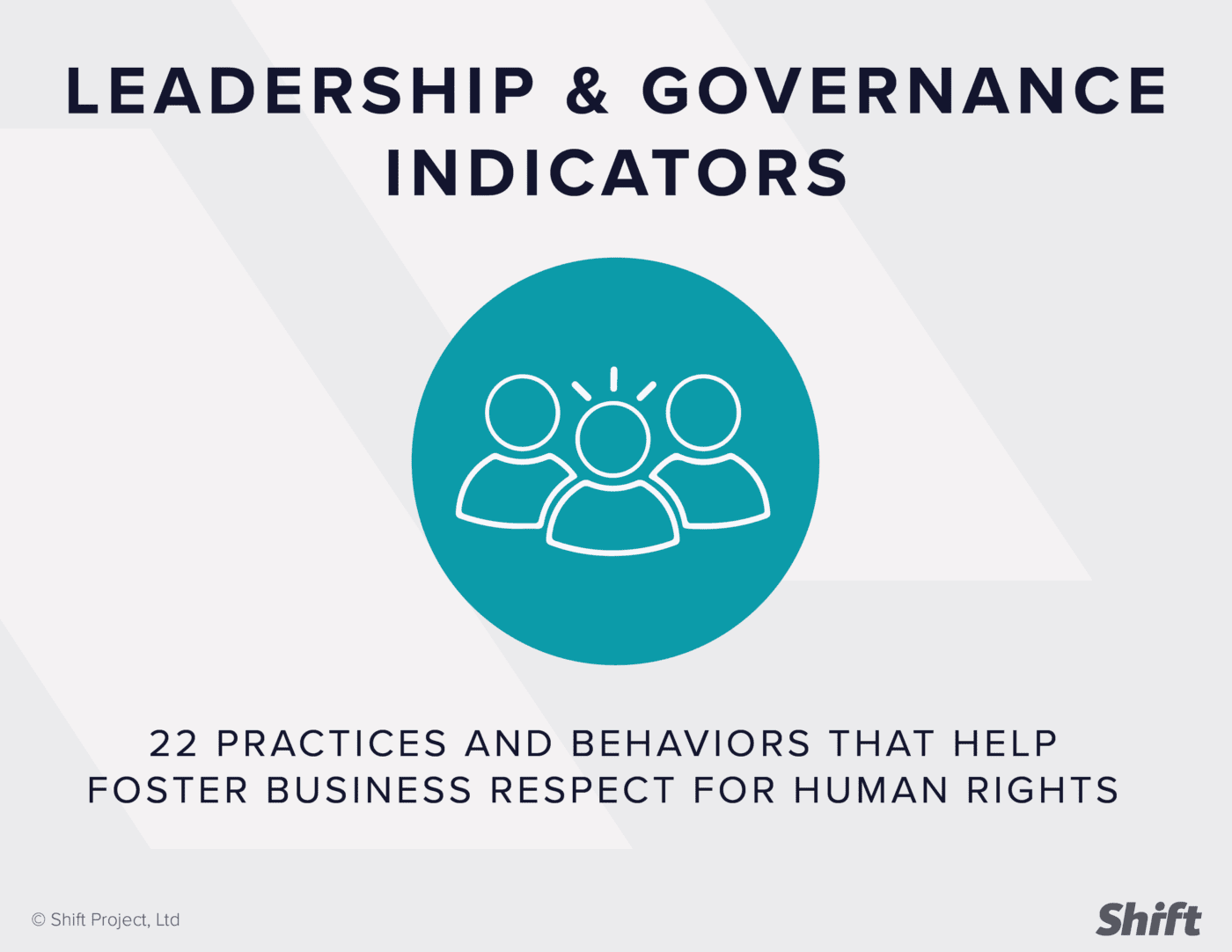
Evaluating Child Labor Programs: Uncovering How Local Norms Impact Field-Level Relationships Between Farmers, Workers and Children
This is a case study of how Philip Morris International (PMI), used participatory evaluation tools to gather information in order to address the “root causes of the most prevalent and persistent issues that keep surfacing” – specifically child labor in their agricultural supply chain.
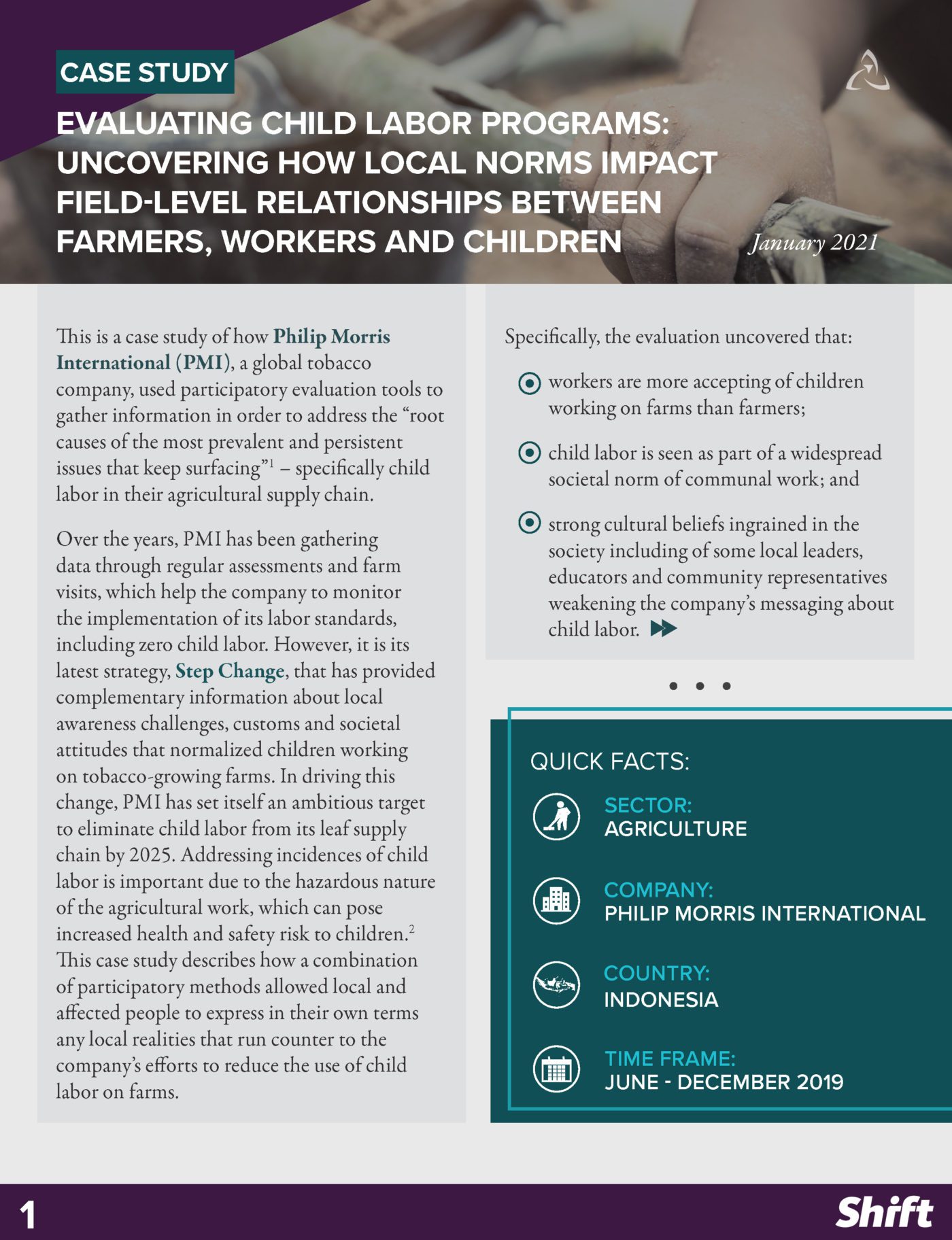
Assessing whether Behavior Change Training can Improve Relationships Between Supervisors and Workers
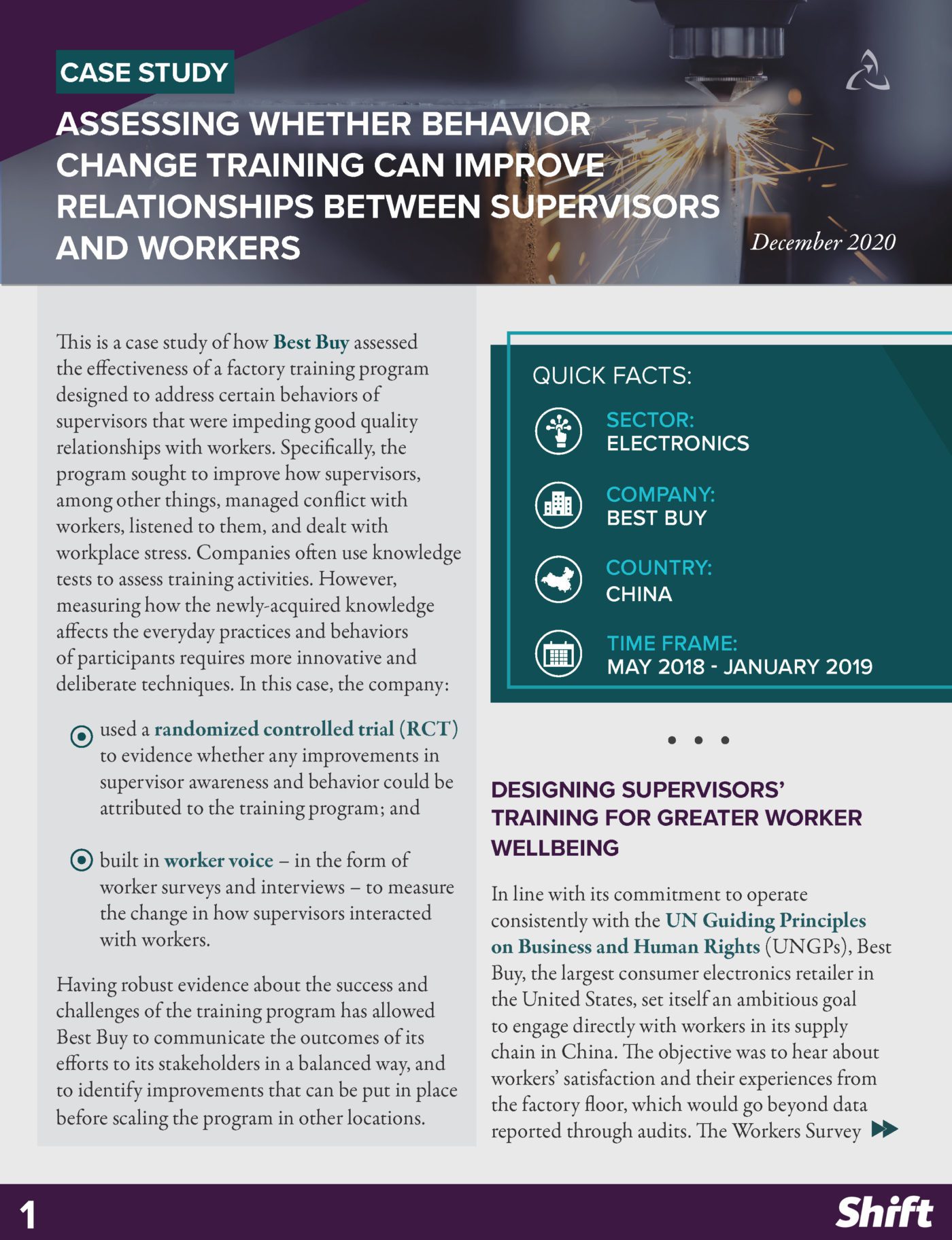

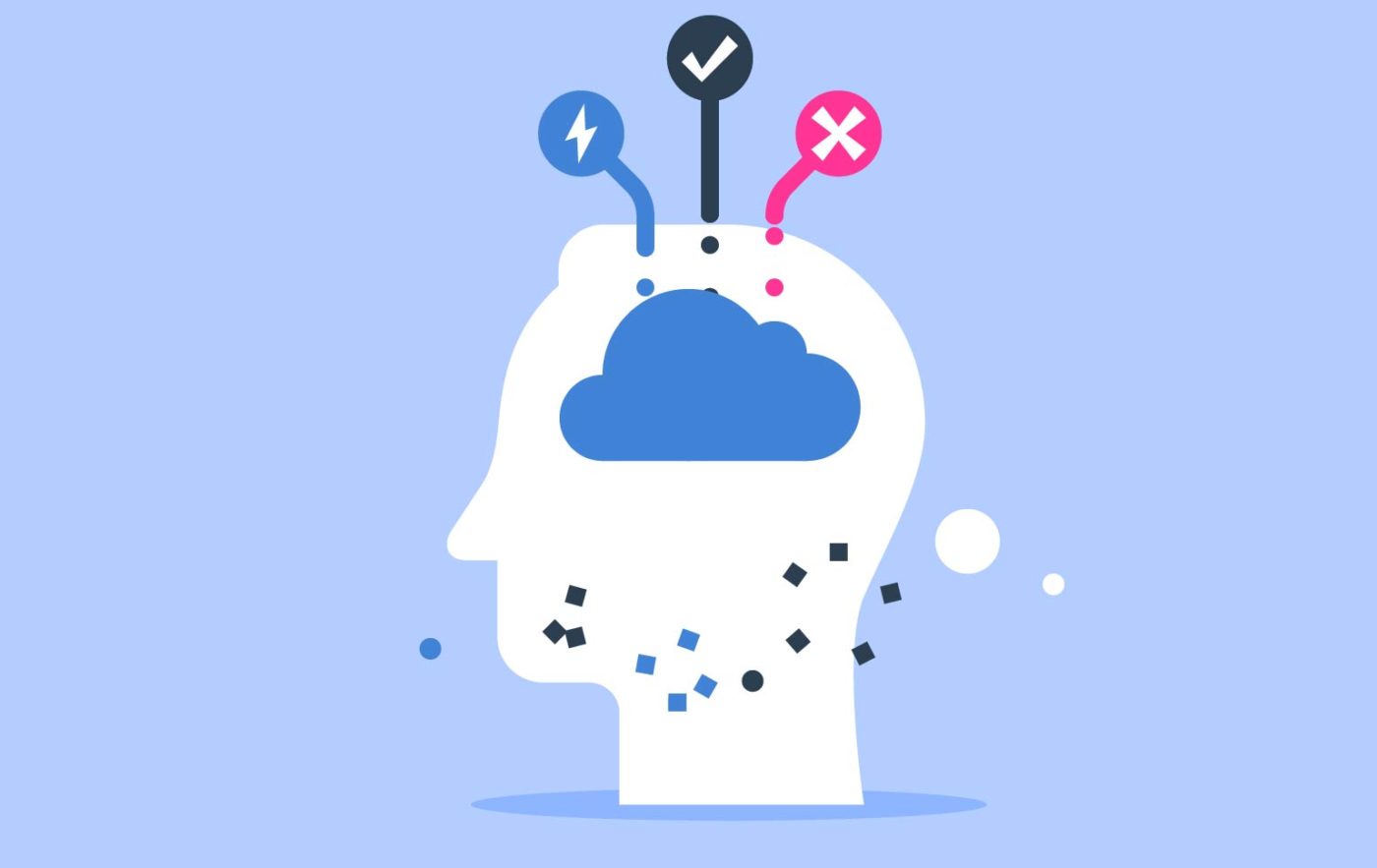
Adding Human Rights to the Shopping Cart
Examining whether nudges can shift consumer online shopping behavior and improve working conditions for couriers.

Applying Leadership and Governance Indicators of Rights-Respecting Culture
This note sets out Shift’s key take-aways from a series of single-stakeholder consultations we organized between July and August 2020, as part of the Valuing Respect Project.
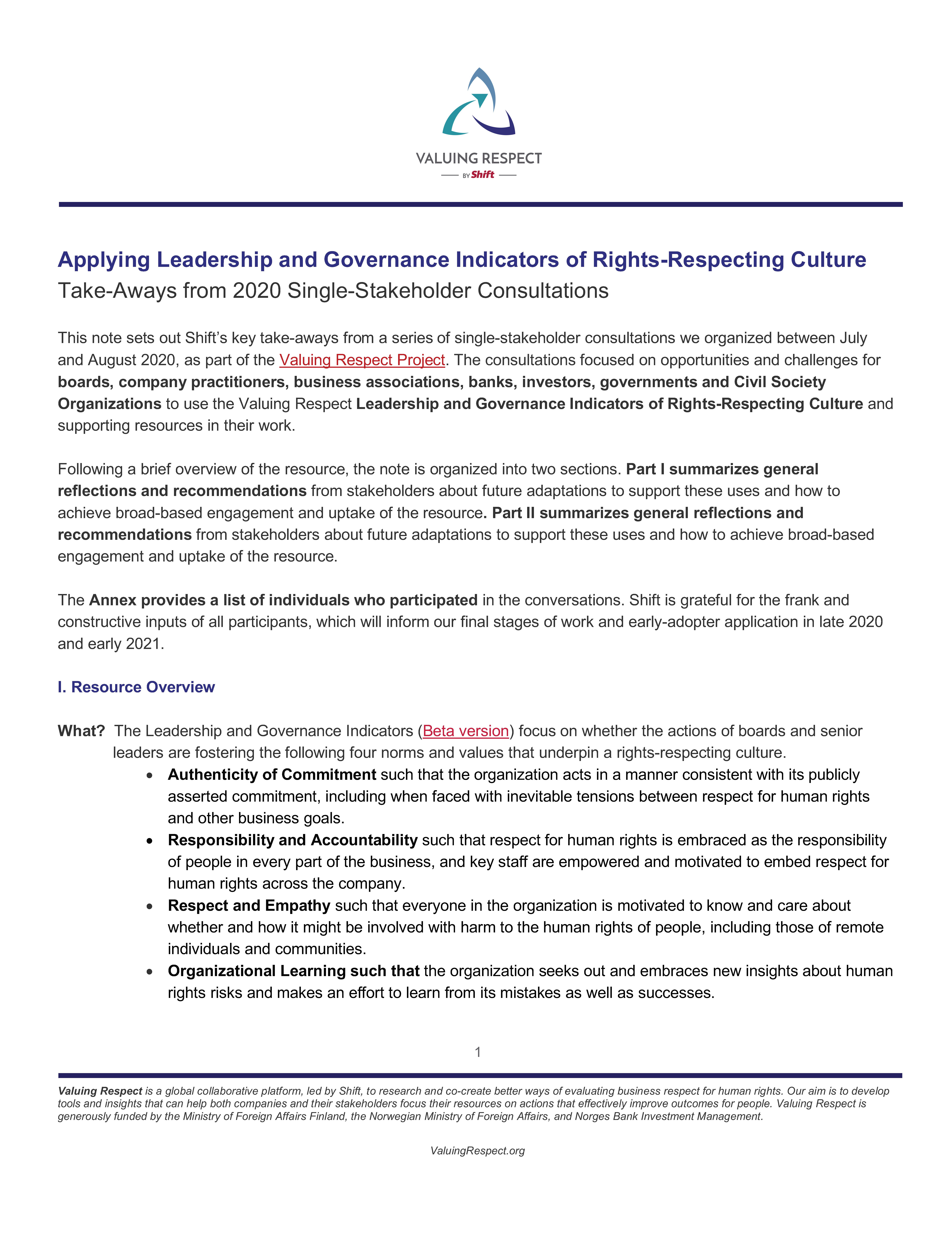
Applying Indicators of Business Model Red Flags
This note sets out Shift’s key take-aways from a series of single-stakeholder consultations we organized between July and and August 2020, as part of the Valuing Respect Project.
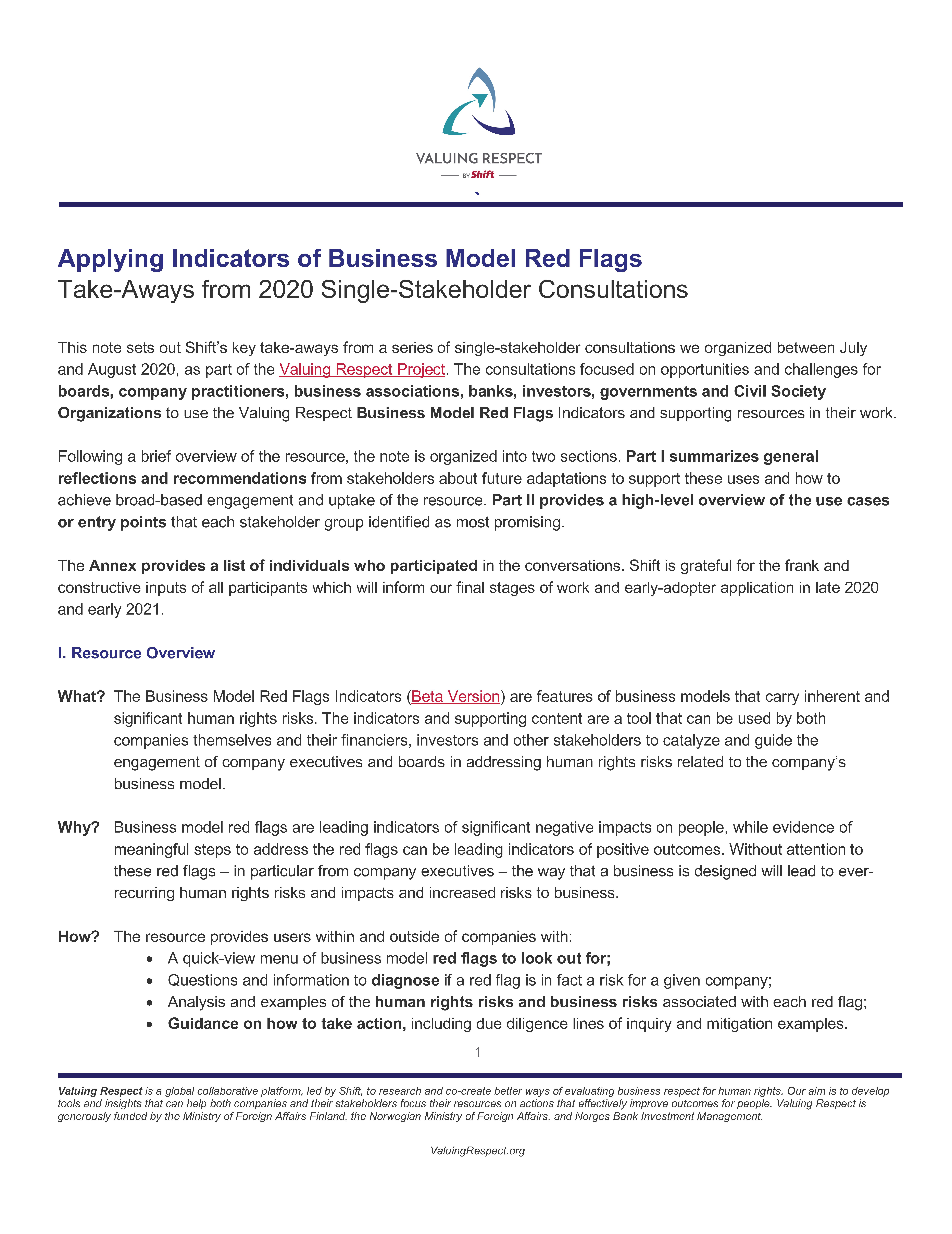
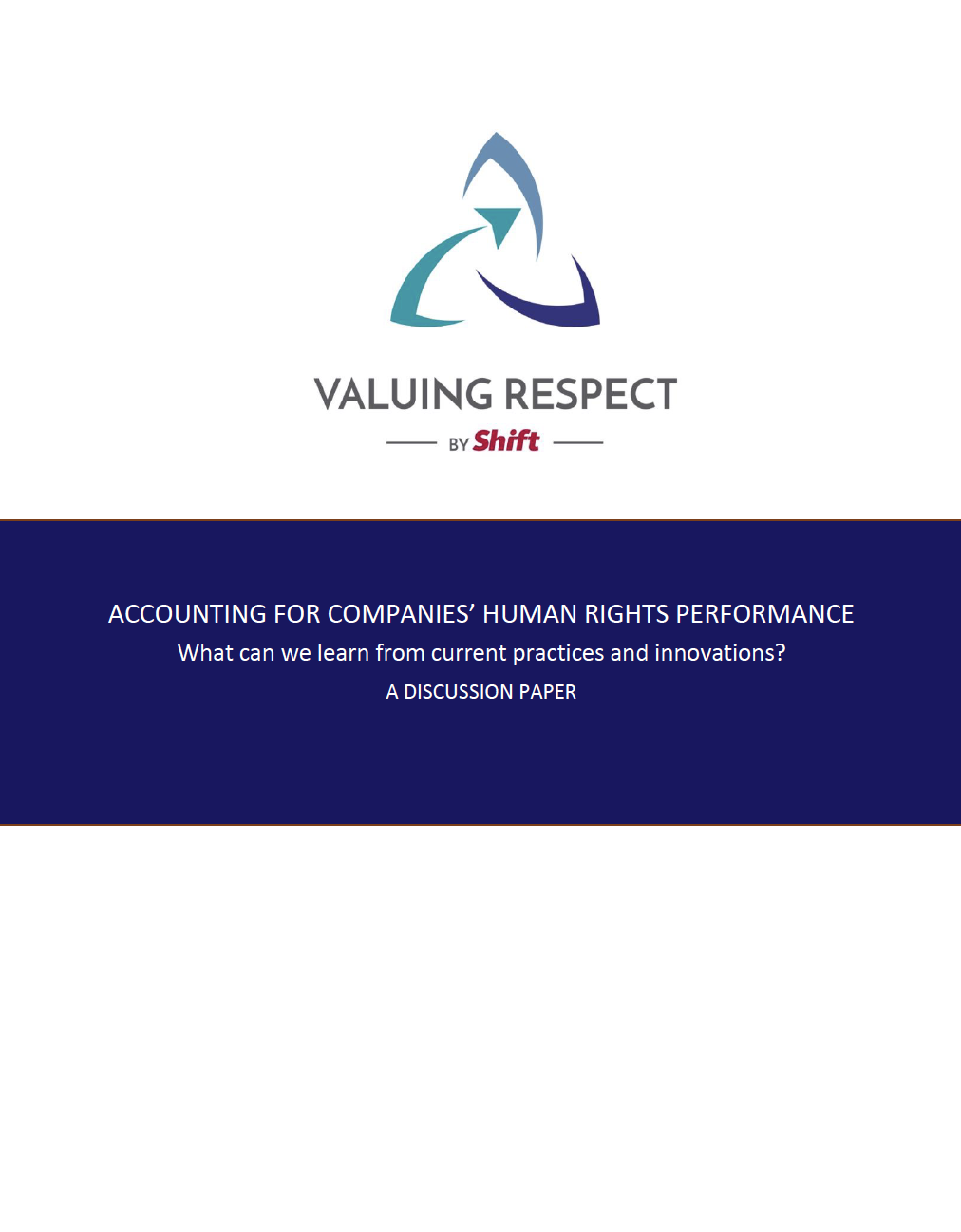
The Problem with How we Measure Business Respect for Human Rights
The Problem with How we Measure Business Respect for Human Rights
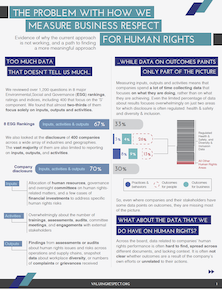
The Current Use of Metrics in Company Human Rights Reporting in Southeast Asia
The Current Use of Metrics in Company Human Rights Reporting in Southeast Asia
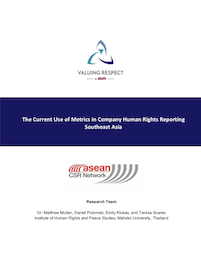
The Use of Metrics in Human Rights Reporting in the Food and Beverage Sector
The Current Use of Metrics in Company Human Rights Reporting in the Food and Beverage Sector
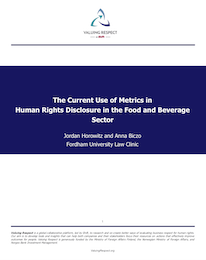
The Current Use of Metrics in Company Human Rights Reporting South Africa
The Current Use of Metrics in Company Human Rights Reporting South Africa
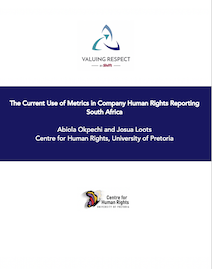
The Use of Metrics in Human Rights Disclosure in the Extractives and Oil Equipment Sector
The Current Use of Metrics in Human Rights Disclosure in the Extractives and Oil Equipment Sector
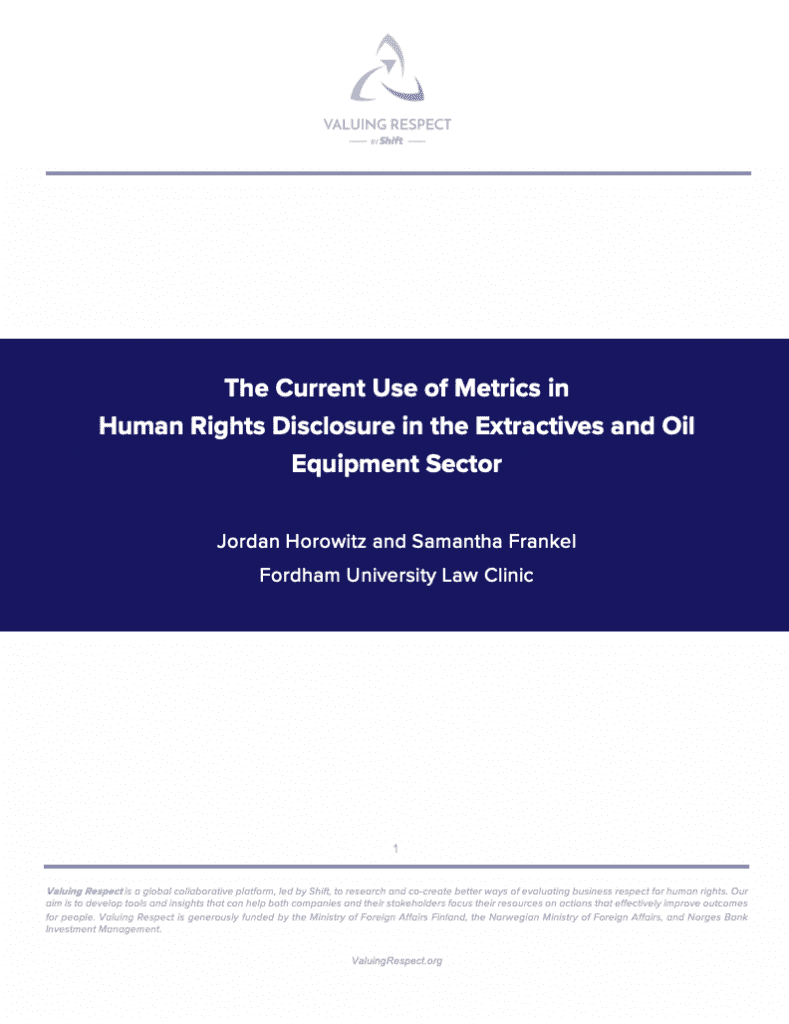
The Use of Metrics in Company Human Rights Disclosure in the ICT Sector
The Current Use of Metrics in Company Human Rights Disclosure in the ICT Sector
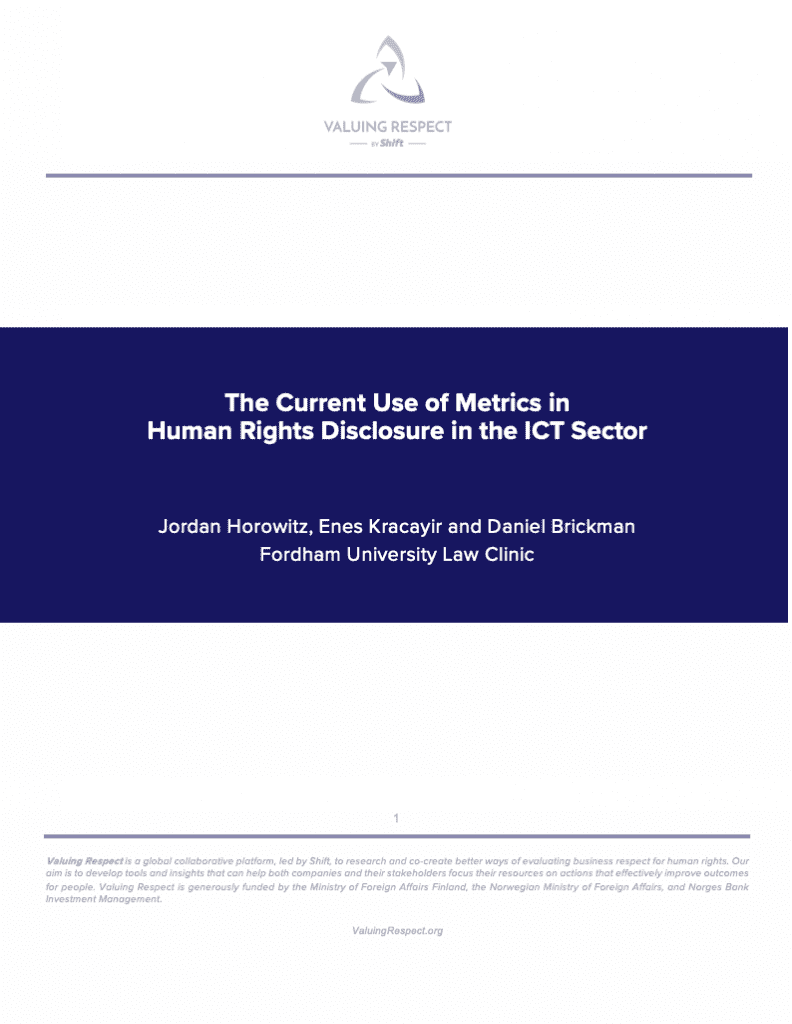
Developing Red Flag Indicators of Human Rights Risks in Business Models
Developing Red Flag Indicators of Human Rights Risks in Business Models
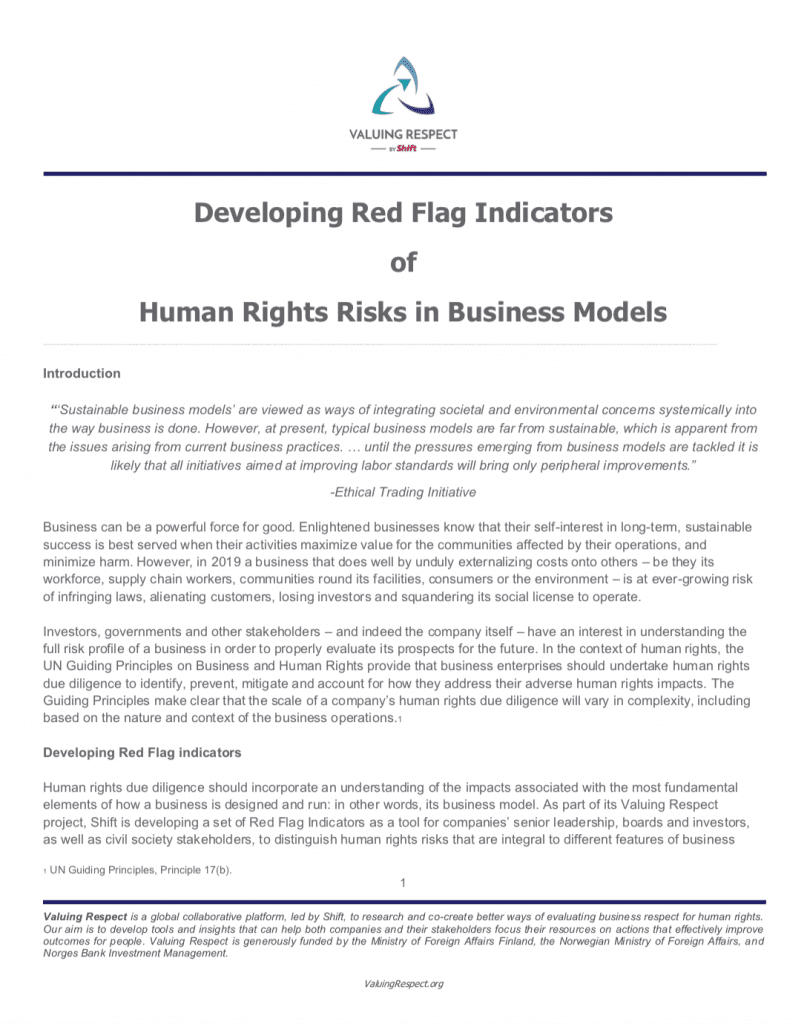
The Use of Metrics in Company Human Rights Reporting in Poland
The Current Use of Metrics in Company Human Rights Reporting in Poland
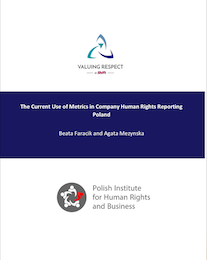
Evaluating Business Respect for Human Rights: A Theory of Change Methodology to Develop Meaningful Indicators
Evaluating Business Respect for Human Rights: A Theory of Change Methodology to Develop Meaningful Indicators
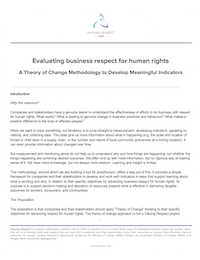
Stakeholder Voice: Learning from Affected Stakeholders to Better Evaluate Program Effectiveness and Outcomes
Stakeholder Voice: Learning from Affected Stakeholders to Better Evaluate Program Effectiveness and Outcomes
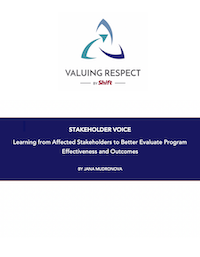
Expert Roundtable on Business, Human Rights and Behavioral Science: A Summary Report
Expert Roundtable on Business, Human Rights and Behavioral Science: A Summary Report
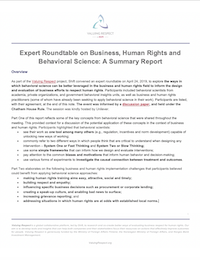
Business and Human Rights Meets Behavioral Science: A Background Note
Business and Human Rights Meets Behavioral Science: A Background Note
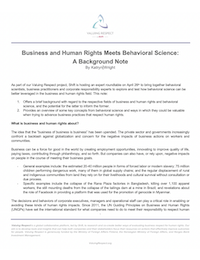
Expert Roundtable on Business, Human Rights and Accounting: A Summary Report
Expert Roundtable on Business, Human Rights and Accounting: A Summary Report
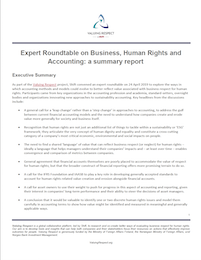
Rights-Respecting Corporate Culture: Cultural Norms & Values that Underpin Business Respect for Human Rights
Rights-Respecting Corporate Culture: Identifying the Cultural Norms and Values that Underpin Business Respect for Human Rights
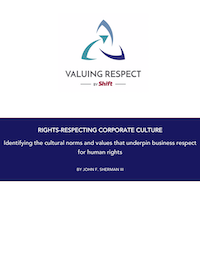
General Takeaways from 2018 Valuing Respect Multi-Stakeholder Consultations
General Takeaways from 2018 Valuing Respect Multi-Stakeholder Consultations
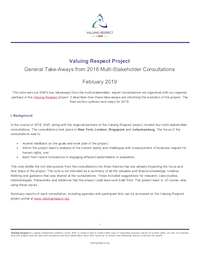
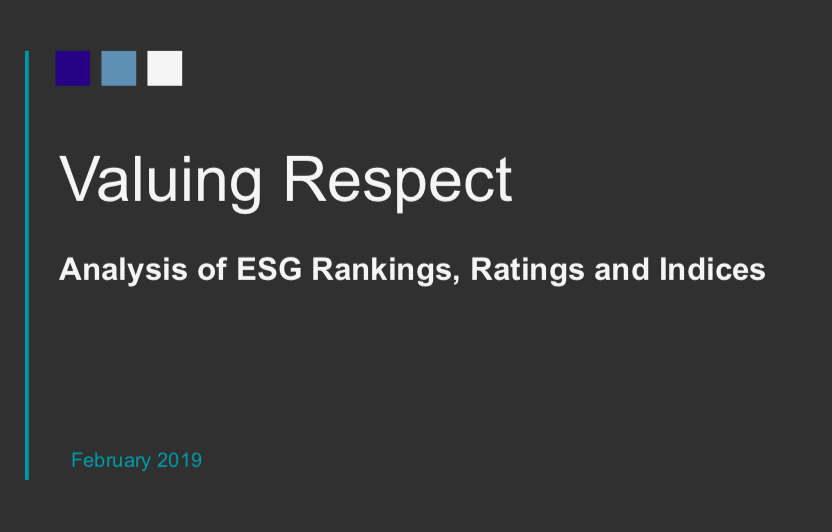
Engaging Affected Stakeholders: Evaluating the Quality of Processes for Company-Community Engagement
Engaging Affected Stakeholders: Evaluating the Quality of Processes for Company-Community Engagement
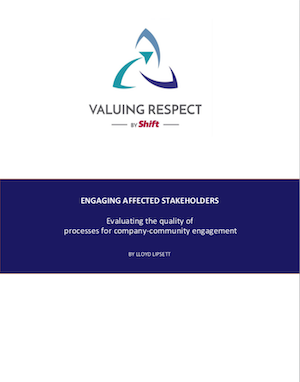
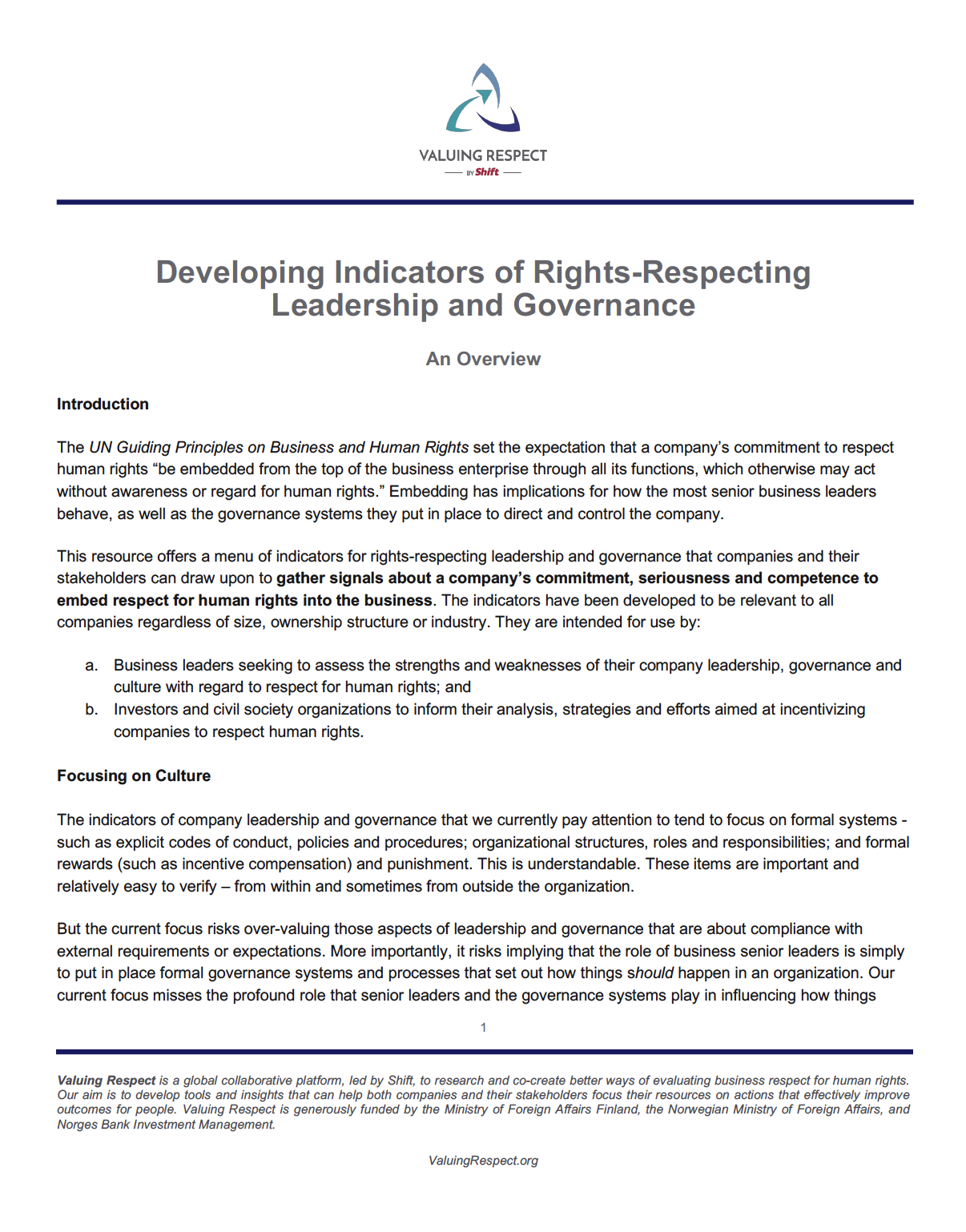
Discussion Paper #1 Evaluating Business Respect for Human Rights: Towards a Shared Way of Thinking
Discussion Paper #1 Evaluating Business Respect for Human Rights: Towards a Shared Way of Thinking
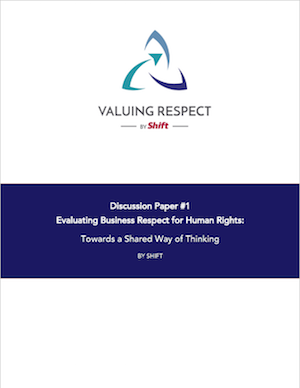
Viewing the Valuing Respect Project through the Lagging v. Leading Indicator Lens
Viewing the Valuing Respect Project through the Lagging v. Leading Indicator Lens
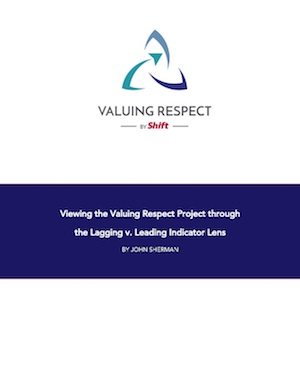
Evaluating Human Rights Performance
Evaluating Human Rights Performance: The Role of ESG Ratings, Indices and Benchmarks
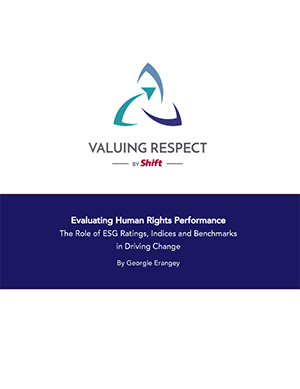

 Business Model Red Flags
Business Model Red Flags  Tool for Indicator Design
Tool for Indicator Design